|
restoring our biblical and constitutional foundations
|
| welcome |
March 2015 Blog Archives
Tuesday, March 31
8:30 PM DBO reader (and blogger extraordinaire) Brain Fulthorp sent a note to tell me that one of my books is now selling for only 99 cents at Amazon. It's true.
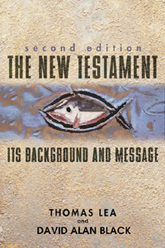
Now if I could get about 500,000 of you to buy it I could retire and begin my dream work in Hawaii: Dave Black's Hephzibah Fire Baptized Pentecostal Calvin Freewill Very Holy Surfing Ministries.
8:22 PM Neil Cole lists (with commentary) some pretty zany church names. My favorites?
-
Hell Hole Swamp Baptist Church
-
Little Hope Baptist Church
-
Battle Ground Baptist Church
-
Country Club Christian Church
-
First United Separated Baptist Church
-
Lover's Lane Episcopal Church
And this is not to mention how many Corinth Baptist Churches there are in North Carolina.
6:04 PM Isn't it about time you did some pruning in your life, Dave? I asked myself this question as I pruned the trees around Bradford Hall today.
There are at least three tests we can apply when we prune. The first is the test of expediency. Paul insists that everything is lawful, "but not everything is expedient" (1 Cor. 6:7). Just because something is permissible doesn't mean it's helpful. Another test is the test of enslavement. All things are lawful for the Christian, "but I will not be enslaved by anything" ( 1 Cor. 6:12). Finally, there's the test of edification. All things are lawful, "but not everything edifies" (1 Cor. 10:23).
Paul's point? Some activities, relationships, and pursuits in life are neither helpful nor upbuilding. They can, in fact, entrap us. That's why we need to "prune" our lives from time to time. Now, you know me. You know I love to dabble in forty things at the same time. My interests are fairly broad -- and therein lies a very grave danger. Dabblers are usually sold out to nothing. They fritter away their time, energy, and resources, aiming at everything and hitting nothing. Our Lord said He would rather have a man who was cold than a follower who was lukewarm. We honor God by focusing our lives on what is of eternal value.
Paul was committed to the "one thing" (Phil. 1:27). That's my goal, too. To attain it, there are some things to forget and there are other things to reach toward. Already in 2015 I've been asking God to prune my life. In the "fight of faith" (1 Tim. 6:11), we face distractions and temptations that can stymie our stamina. Friend, put your faith to the test by asking God to prune your life. Just today I went through my "Favorites" and deleted most of the websites that were there. I've even told the Lord I'm willing to blog less if that meant I could be more effective for the kingdom. (Don't count on it.) Everyone of us faces "time wasters" -- usually unhealthy relationships that drain us or questionable activities that enslave us. "We'd better get on with it," says the author of Hebrews (12:1-2, The Message). "Strip down, start running -- and never quit! No extra spiritual fat, no parasitic sins. Keep your eyes on Jesus, who both began and finished this race we're in."
In other words, start pruning!
P.S. Today I received an email from SIM Roots magazine, and guess what -- it features an essay submitted by our very own Becky.
The website is here. For some reason the essay is password protected, but send me an email and I'll see that you can access her story. Talk about a "living epistle" known and read by all. Thanks be to God!
12:38 PM Just came in the house for a glass of water. I do believe I'm gonna work outdoors all day today.
It's simply too beautiful a day to waste inside.
P.S. This morning I watched a YouTube on how to plant trees. I'm ready! FedEx says it should arrive tomorrow.
11:18 AM Seems like this is the first time in ages I've not been traveling during Easter break. Good thing too. Lots of farm jobs to do. Just mowed the back yard.
Still have to:
-
mow Maple Ridge
-
do a trash run
-
fill in the truck ruts from the winter
-
spray Round Up on the walkways
-
buy some metal fence posts
-
weather strip the front door of Bradford Hall
-
write for 4-5 hours
I love it. The weather is sunny and a perfect 62 degrees.
P.S. If you're a student, mark Saturday, April 28 now on your calendar. That's our next Student Work Day here at the farm from 9:00-3:00. I've got plenty of projects to get done :)
10:12 AM I had a wonderful conversation recently with a close friend about eldership. I possess little desire for eldership – or "overseership," as Paul calls it (1 Tim. 3:1). What is leadership? It is that invisible something that when Peter said, "I'm going fishing," caused his friends to say, "We'll go with you" instead of walking away yawning. I admire gifted leaders like that. I've known a good many of them. But I don't belong in their company.
What am I then? I think I'm a teacher. The New Testament often emphasizes the importance of teaching. "In the church at Antioch there were … teachers," writes Luke (Acts 13:1). Paul exhorted the Romans, "Having gifts that differ according to the grace given to us, let us use them … he who teaches, in teaching…." (Rom. 12:6-7). To the Corinthians he wrote, "God has appointed in the church … teachers”"(1 Cor. 12:28), and in Galatians he refers, ever so briefly, to "the one who teaches" (Gal. 6:6). Of course, all of us are to be teachers in one sense; we are to "teach … one another" (Col. 3:16). And in Hebrews we read, "By this time you ought to be teachers" (Heb. 5:11). We all have something to teach others – or should.
I can't tell you how much I delight in hearing some member of my church utter encouraging words of instruction during our services or in visiting websites written by "laypeople" that are full of good, practical Bible teaching. In fact, sometimes informal conversations around the Word can be more effective, more persuasive, more powerful, more life-changing than formal instruction. But this does not mean that all should be teachers in another sense. As James writes, "Let not many of you become teachers" (James 3:1).
So what part of the body am I? Probably a teacher. I love teaching in an academic setting. But I also love teaching in less formal venues, including Ethiopian huts and small groups in Romania or Armenia. And I especially enjoy teaching in the local church, where I imagine it all began in the first place and where teaching is more closely tied to real life than in the ivory tower setting of the formal classroom.
Are you a teacher? Do you have something to contribute to the body by way of "upbuilding, encouragement, or consolation" (1 Cor. 14:3)? It matters not what level of formal academic training you may have had or not had. If we are members of the body of Christ, we have the privilege and, yes, the responsibility of teaching one another. I emphasize this great truth everywhere I go. You do not need special training in a theological college to be a God-trained and God-taught teacher in the church. Just look at Paul's use of theodidaktoi in 1 Thess. 4:9: "You yourselves have been God-taught." Or read John's instruction in 1 John 2:20, 27 about the chrisma (anointing) you have from God. Or see the promise in Jer. 31:33-34 that God would write His law on the hearts of His people and teach them directly as part of Jesus' new covenant ministry.
On the other hand, some of you are specially gifted in the area of teaching. Here is my advice to you: Do not think you need to be an elder or a pastor to teach. As Paul puts it in Eph. 4:11, all pastors are teachers, but not all teachers are pastors. I believe a healthy church will have both shepherd-teachers and sheep-teachers, working together in harmony for the building up of the entire Body of Christ. In other words, a New Testament church will have a host of teachers, not only ready to impart knowledge, but to receive it.
8:25 AM This and that ...
1) Tommy Wasserman has posted Harold Greenlee's obituary over at the Evangelical Textual Criticism site.
2) Matt Slick answers the question: How many days was Jesus dead in the tomb?
3) Joni Eareckson Tada says Suffering is sacred.
God I am so tired of being a quadriplegic. I’m so tired of this. I have no ability to do this today, but I can do all things through you if you strengthen me. So would you please empower me today? Infuse within me today the grace needed to help me to open my eyes and face the day with a bright attitude, your attitude.” I tell you what, when I pray that way—and it happens almost every morning—by the time my girlfriend does come into the bedroom with that cup of coffee, I’ve got a smile sent straight from heaven.
4) Check this out. The Digital Dimensions website tells you why you should blog.
5) Many thanks to Arthur Sido for his bulls-eye analysis of Indiana's Religious Freedom Restoration Act.
6) This note put a smile on my face:
Your post tonight sounds like a great introduction to your book on widowerhood. :)
Monday, March 30
8:22 PM Tonight I want to make a statement I thought I would never make in a million years. I truly believe I'm a better man because I'm a widower. Pain begets growth. It cannot be otherwise. As a teenager who grew up without a father, I had to find my identity in something larger than an earthly father. In the words of Hosea (14:3), I discovered that "In You the fatherless find a father's love." I think of how my Heavenly Dad helped me navigate through the treacherous teen years and how He protected me and provided for me, like all good fathers do. In Him I found a father's love. Likewise, in losing your spouse, you face a make it or break it situation. Either the experience will crush you, rob you of your joy completely, or else it will fundamentally transform you. I don't believe in any such thing as "accidents." I can't find anywhere in the Bible where it says that the tears, the loneliness, the pain of this life are purposeless. He is at work in it all, if for no other reason than to sanctify us.
The Scriptures abound with such promises. Out of suffering comes holiness in the form of greater endurance, strength, fortitude, wisdom, and consolation of the lowly and suffering of the world. Becky's fortitude always struck a very deep chord in my heart. Five years after her diagnosis, my own heart is now ready to accept the challenge -- to present to God an open heart and open hands to receive whatever He shall choose, and a renewed confidence that He always chooses best. "It is My own peace I give to you," says Jesus. "It's not the world's peace at all." The love of God is a crown of thorns. Life is just that simple. To be a widower is to make a choice that brings you daily into an ever greater and closer communion with the Spirit of Christ. It's been a year and a half since God took Becky home, and it's finally dawning on me with new understanding that her love has never left me since her love was never really her love but the love of God through her. I'm back in school again, the school of the Father's gentle discipline, and the forms of suffering I'm experiencing aren't "electives" I can opt out of. Widowerhood is now my vocation -- not one I sought or was prepared for, but my vocation nonetheless. Think of it: Jesus Himself had to learn obedience through the things that He suffered as He was scorned and rejected, beaten and crucified. How could I have ever been so blind as to fail to see that the relatively small discomfort of widowerhood is nothing compared to His gift of love on my behalf? To walk with Him is to walk the path of the cross. It is to remember that God does not "fix" all of our problems precisely because He lives in us. It is ours to accept and endure and embrace the loneliness without any bitterness whatsoever, knowing that Becky's home going was not evidence of God's indifference but rather proof of His wise and loving choice for my blessing and growth.
And so I'm learning the lessons of widowerhood, learning that the requirements for discipleship are exactly the same as the requirements for marriage. Both are utter impossibilities without the enabling power of the indwelling Spirit. My joy is becoming less and less dependent on people and more attached to my walk with Him. I'm experiencing in a new way what the Bible calls "the peace of God" -- not the peace that comes from the absence of turmoil but the peace that comes through acceptance. So I'm not a husband anymore. I've been given another assignment -- to plumb the depths of human grief and, in the process, maybe, just maybe, discover what C. S. Lewis once referred to as "the consuming fire Himself, the Love that made the worlds, persistent as the artist's love for his work and despotic as a man's love for a dog, provident and venerable as a father's love for a child, inexorable, exact as love between the sexes" (The Problem of Pain, p. 35).
If this be Love, let it increase! Widowerhood to the glory of God! Unfulfilled desire swallowed up in grace! Glory to God!
4:40 PM I just received word that well-known New Testament textual scholar and missionary Harold Greenlee passed away on March 21 at the age of 96 in Fort Myers, Florida.
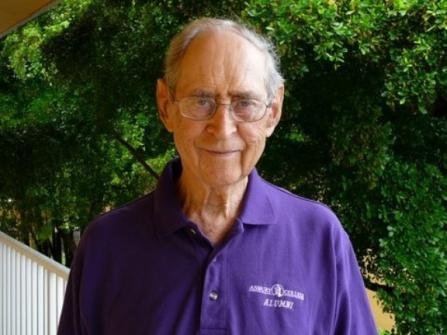
A memorial service will be held on April 11 at the Village Church of Shell Point Retirement Community in Fort Myers. Harold was a quiet man and a very detailed scholar. His primer on textual criticism is perhaps his best-known work. It was my privilege to edit a Festschrift in his honor that was presented to him at the annual meeting of the Society of Biblical Literature in 1992. It is now my privilege to attend his memorial service, which means I will miss the Appomattox event and so will "retire" from reenacting at some other time.
The Lord has called home yet another faithful servant who labored in the field of New Testament studies and was committed to Christ and His Gospel. Harold was a remarkably humble and godly man. He will be missed.
9:02 AM Some scattershooting ....
1) Someone asked me if there are vocabulary cards for my new Greek grammar in Spanish. The answer is yes. Here's where to go.
2) An unexpected email:
I think a remembrance tree is a great idea.
3) A friend of mine sent me this picture today. No, he's not in Africa, just visiting Disney World. :)
4) Should you quit Facebook?
5) Do children who die go to heaven? Check out one scholar's answer.
6) My favorite books on Christian philosophy:
-
The Subversion of Christianity
-
The Technological Society
-
The Presence of the Kingdom
-
The Meaning of the City
-
Anarchy and Christianity
-
The Political Illusion
Yes, they are all by Jacque Ellul.
7) Monday video:
Sunday, March 29
9:32 AM The irony is not lost on anyone who has been there. Fort Lee lies just outside Petersburg, VA, and it's where George Gordon Meade established his headquarters during the final campaign to defeat the Army of Northern Virginia, an army led by, of course, Robert E. Lee. On March 25, 1865 -- 150 years ago -- Lee launched what was to be his last major offensive of the war against Fort Stedman. The Confederates retreated, and eventually they would end up at Appomattox. "The fighting yesterday proved the enemy has still some spirit left in him," wrote Meade to his wife shortly after the battle, "and Lee, having once begun, is likely to try his hand again; and if he don't, I suppose we shall have to take the matter in hand." Sure enough, at a nearby road junction the two armies squared off again. The Battle of Five Forks -- the "battlefield" is nothing more than a collection of highway markers -- marked the beginning of the end for Lee.
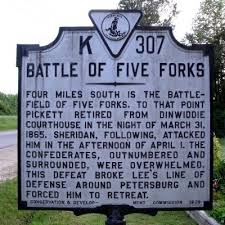
A massive Union assault followed on the grounds of what is now Pamplin Historical Park -- a sight you've likely driven by many times on Interstate 85 just outside of Petersburg. The Federal breakthrough here is probably the least known battle of the war, but the site merits a visit, which I plan to pay this week since the weather has turned sunny again. The park also houses the Museum of the Civil War Soldier, which (I'm told) examines the war from the point of view of the rank I've always held as a reenactor -- that of a humble private ("The mere extension of a musket," we would quip). It was here that Confederate General A. P. Hill was killed by a Union straggler he was trying to capture.
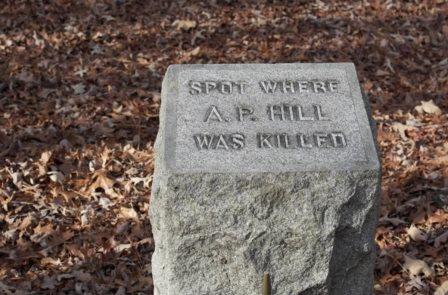
With the fall of Petersburg, the city became a tourist attraction. On April 3, Abraham Lincoln arrived with his son Robert, who was serving on Grant's staff. "I doubt whether Lincoln ever experienced a happier moment in his life," wrote one observer. The president had a mere 12 days to live.
It's only about a 2 hour drive from Petersburg to Appomattox Court House, and you can trace Lee's retreat by following the roadside markers. By this time Lee had reached Amelia Court House (I've spoken in the Baptist church there many times), where he hoped to find much-needed supplies. There were none. On to Farmville and then to Appomattox and the end of the war for his army. There are few more iconic moments in American history than the day Lee surrendered to Grant. Yet disagreement over the cause and nature of the war would linger well after the end of conflict.
On May 3, Lee's old nemesis George Meade called on the defeated general at his home in Richmond. The two men talked for a long time. Meade left, saddened about his former enemy's reduced position. Yet Meade was also relieved. The war, for him at least, was over. Meade would return north to celebrate not only his army's victory but also the peace they had secured.
If ever there was a time to take your family to see Lee's retreat route or to visit Appomattox, it is now. Growing up in Hawaii, I came to the Civil War late in life. Even today I remain uncomfortably aware of how ignorant I am of so much of our great nation's history. I do know, though, that the Civil War will always remain on ongoing conversation in American life. "The past is a foreign country; they do things differently there," wrote L. P. Hartley. And it is that past that has so much to teach us about the here-and-now. It's not just what happened then. It's about what is happening today.
Saturday, March 28
5:52 PM Excellent book, somewhat technical though.
Free for the asking (if you've had at least three semesters of Greek).
3:44 PM It's called a sugar maple. I just ordered one from Stark Bros. I hope to plant it in April in front of Bradford Hall.

I find myself inexplicably attracted to the idea of planting a "remembrance tree" to Becky. Honestly, I can't come up with a very good reason other than that I want to watch it grow up as I grow old. It will be a reminder that she once graced these halls. It will be a visible sign of a glorious invisible reality that I believe in with all my heart. Because death is not the end. God is able to bring life out of death. When others are telling me I should get on with my life, my answer is, "I am, but I'm doing it slowly. I'm doing it my way." I don't ever want to be seduced by my culture into thinking that I need to be or do anything other than what the Lord is telling me to be and do. And so I'm planting a remembrance tree. And that tree and I are going to grow old together. And future generations will look at this tree and ask, "Why in the world did he plant that tree?" And they will understand. Maybe not right away. But eventually they will. They will understand when they experience their first major loss. They will understand when the world is no longer wrapped around their little finger. They will understand when at times they have to swallow hard just to speak.
Why is this so hard?
3:30 PM Well, the day is drawing to a close and I haven't gotten my 4 hours of writing in yet. But it was all for a very worthy cause. The India team worked for me, and the Lord helped them fund their trip. Plus the fellowship we enjoyed! To think that the team is about to depart. I want to start praying for them now. I'm going to pray for them every day until they return. In the meantime, I find myself exhausted. So I think I'll just say "No" to the writing I had planned for today and sit down with a good book and a warm fire on this cold spring evening. The thing is, I'm tired but it's a good tired. A very good tired. Which, at the end of the day, is about the best deal I can imagine.
Friday, March 27
6:16 PM It was in late summer of 1993 as I recall. I had recently acquired Cody, my 7-year old Arabian, and was looking through the local newspaper when I ran across an ad for the "1st Maine Cavalry." I was curious. "What in the world is a 1st Maine Cavalry?" So I called, and lo and behold the ad was seeking new recruits to ride with a Union Calvary reenacting unit. At that time, Southern California had Civil War reenactments almost every weekend, though that was news to me. So I drove out and trained with them for a couple of weeks and it wasn't very long before they said, "Why don't you and your family come out to next weekend's reenactment in Irvine?" We did just that, and the rest (as they say) is history, in this case literally. This past year you may have read a whimsical article or two about the Civil War Sesquicentennial that was celebrated this past year. There's been a lot of talk about the older generation of reenactors giving way to the younger bucks, and I think there's a lot of wisdom in that notion. I don't want you to get the wrong idea. I loved this hobby. I made lots of friends, learned more about the war than I ever thought possible, even preached to Lee and Jackson during Sunday morning period church services in camp. The show battles were fun too. Believe me, you have no trouble falling asleep at night after you've fought two major "battles" in one day, often in 90 degree weather while wearing a pure wool uniform. To continue, I've never begrudged my time as a private or watching Becky cook breakfast or hearing Nathan ("Stonewall") call assembly on his bugle. I'm also well aware that I'm getting too old to do both reenacting and all the international traveling that I do for the Lord. So the time has come.
Several of you have emailed me about the reenactment (my "retirement" event) coming up in Appomattox in two weeks. Two sites to check out are:
http://www.nps.gov/apco/150th-anniversary-of-appomattox-court-house.htm
http://www.appomattoxhistoricalsociety.org/150th%20-%20schedule.htm
The best part of the weekend, of course, will be the period dance on Saturday night.
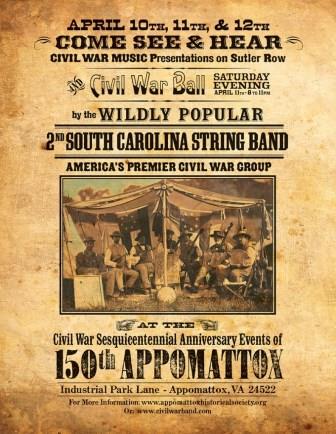
This will be my first ball without Becky, but in my mind's eye I will see her in her flowing ball gown and hoop skirt, I will stare into her deep blue eyes (who can ever forget her eyes?), and I will relive the memory of waltzing with her to the tune of everyone's favorite non-period song, the Ashokan Farewell.
I don't think I'll be up to waltzing again but I just might jump in for the Virginia Reel or a couple of Right Hand Stars. Because of the evil that exists in the world, a war was fought 150 years ago on this soil. And because of the evil that exists in this world, I lost my wife to cancer 15 months ago. But only for a while. Soon, very soon now, there will be a new heaven and a new earth, without a single trace of war or death or mourning or pain. Every tear will be dried up forever, and we will all discover life as it was meant to be. Jesus, I believe, understood better than anyone else what it was like to suffer. He was one tough dude, we might say in today's vernacular. When I think of Becky, old fashioned words like strength of character and fortitude come to mind. She never ran from her problems. She stood like a stone wall, firm in faith. Remember that the next time you are tempted to focus on the dark side of your soul. We're not alone. We've got a Guide who has mastered life -- and death -- and knows both like the back of His hand. If you follow Him with all of your heart, you'll come out on top too one day.
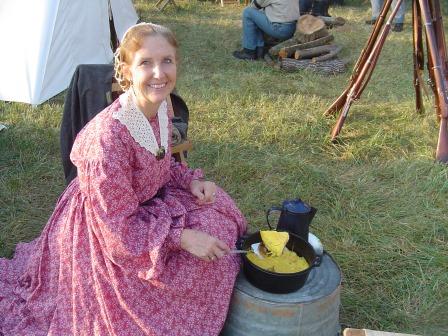
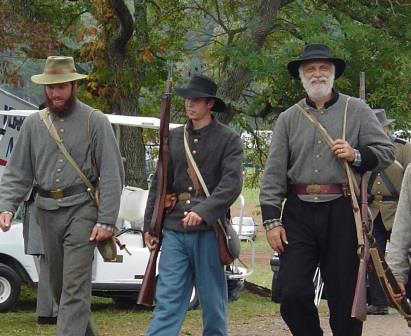
11:52 AM The sin of political idolatry is clearly addressed in the historic document called the Barmen Declaration. You can read it here. Its author, Karl Barth, describes its origins:
How wonderful it would be if the church in the U.S. said "Nein!" to political power and followed Jesus' example instead. Sadly, we either point the finger of blame at government for our ills or look to it to solve our societal problems. A lot more could be said. I'm going to try and include a chapter in my book Godworld on the Confessing Church in Germany and its call to reject Hitlerism.
11:30 AM You know me. I don't like hanging onto books I've read when someone else could be benefiting from them. Here are two excellent works I'm giving away. Just write and ask for either of them and I'll get them in the mail to you.
10:06 AM It is not our main concern as Christians to condemn and denounce what we perceive to be false teaching, though that has its place and we have almost stopped doing it. But we certainly should be developing the kind of Christians who are willing to sit down with their brothers and sisters and discuss their differences in a civil and Christian manner. That's why I was interested to see Roger Olson's latest blog post in which he recounts his recent visit to Southwestern Seminary at the personal behest of its president, Dr. Paige Patterson. Perhaps this quote says it best:
My dining with Dr. Patterson and his wife in the president’s house and then sitting with him on a platform (just the two of us) for a forum with SWBTS students and faculty seems to him and to me a turning point in Baptist relations. Not that we agree on everything; that will almost certainly never happen. But we agreed to disagree in a cordial, friendly manner accepting each other as good Christians and Baptists. This has not always been the case throughout the so-called “Baptist wars” of the past 35 years.
Beware of a Christian profession that is words without music and mandates without melody. This post by Professor Olson was sweet music to my ears.
9:55 AM Just received an email from an organization that's "looking for creative ways to help your ministry grow." It's "designed to help your ministry raise more money, engage more givers, and accelerate ministry." Think I'll pass. I have no idea how I got on their mailing list, but they have now been assigned to the abyss (junk email).
9:38 AM A few random thoughts ....
1) If you ever find yourself in South Boston, VA on Hwy 501, you might want to stop at Mexico Viejo. The food there is terrific. Be sure to try the Arros con Pollo.
2) In exactly 2 weeks from today I will "hang it up" in Appomattox, VA during the 150th anniversary reenactment of Lee's surrender to Grant. Thus far I've been able to find my uniform and musket, but I'm still looking for my cartridge box and bayonet. I'm already beginning to feel nostalgic.
3) This week I checked a book out from the seminary library called The Evangelicals and the Synoptic Problem. It's a dissertation published in 2014 and so you would expect it to be up to date. Yet it says not a word about the Fourfold-Gospel Hypothesis, probably because there's only one New Testament scholar in the universe who holds to it!
4) Have you ever given thanks for Joseph Scriven? He wrote the words to the great hymn "What a Friend We Have in Jesus."
What a friend we have in
Jesus, all our sins and griefs to bear!
What a privilege to carry everything to God in prayer!
O what peace we often forfeit, O what needless pain we bear,
all because we do not carry everything to God in prayer.
5) Tomorrow is India Work Day here on the farm. Can't wait to see what the Lord has in store for us.
6) The software industry offers a vast array of helps intended for serious Bible study. One of the best of these is Logos Bible Software, which has agreed to publish the Spanish version of my Learn to Read New Testament Greek. Look for an announcement shortly.
7) Yesterday I heard from Abidan Shaw that he wants to do another interview with me for his podcasts. The topic this time around will be my book New Testament Textual Criticism. Previously we discussed It's All Greek to Me and Why Four Gospels? If you find yourself absolutely bored to death and would like to listen to these (and several other) interviews, you can go here and scroll down to "Interviews."
8) After hearing the sad news about the death of Robert Saucy, I ran across a page of testimonials by his colleagues at Talbot. Bob leaves a wonderful, God-honoring legacy. Incidentally, if you can't attend this Sunday's memorial service on the Biola campus, I'm told that it will be live-streamed at the university's website.
9) Someone once said, "'No' is a complete sentence." Let's be ourselves when we need to say to "No" to something we feel uncomfortable with. No lengthy explanations are needed. Just make your decision and move on to the next step in your life.
Thursday, March 26
6:20 PM "History is a symphony of echoes heard and unheard. It is a poem with events as verses" (Charles Angoff). Below is one of the most well-known photos of Robert E. Lee, taken by Matthew Brady only a few days after the surrender.
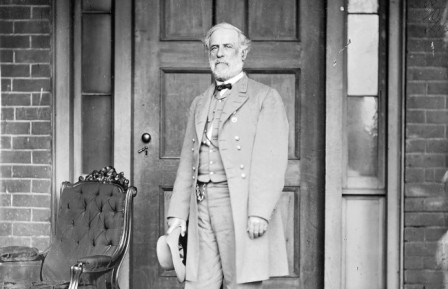
I've visited 707 Franklin Street in Richmond several times and even had my "likeness'" taken there. However, it wasn't until today that I learned about the graffito in some of Brady's photos, and it's not very complimentary. You can read about it here.
The amazing thing about history is that you're always learning something new. That's one reason I love it so much.
6:04 PM If dogs could text ....

2:46 PM I accidentally listened to Rush while eating lunch today (hehe) and talk about a man favored by God! No, not Rush but Ted Cruz. This momentous hour finds our generation drunk with wine -- not necessarily wine from a bottle but from a source that has all the same stimulants of evil -- the intoxication of politics. All the well-meant stirrings of the flesh are mere concoctions intended to give us false excitement. In our LXX class we've been going through Amos, who was undoubtedly considered a neurotic by his cheery fellow preachers. "Why, the poor man just can't seem to get excited about either politics or religion!" Well, he was right and they were wrong. This old world tires me. Our age is a futile effort to reach jaded mortals with a religious version of the thing we are already intoxicated with. It's one reason I love Jesus so much. He recognized all the ills of the society of His day yet refused to meet them with a Pollyanna philosophy, painting the clouds with ersatz sunshine. The pressures of today are terrific on the young Christian who does not run with the political herd. Like Amos, Daniel was another non-conformist who turned down the king's table and dared to be different. Young person, it is worth all the costs of self-denial and lion's dens to follow Jesus. Nothing under the sun is as dry and tedious and ephemeral as religion without the Spirit. No wonder people flock after their "causes." The wise Christian rides no one's bandwagon. Disciples of King Jesus don't wear themselves out tooting a horn for this or that cause that springs up like the onion grass I see in my yard today and withers away tomorrow. Today we live in a feast of words and a famine of Calvary-like actions. We can do better than that. Thousands upon thousands (I am one of them) have found it so.
10:20 AM What are you doing, Henry? Trying to embarrass me?!?!
10:08 AM Good morning bloggers!
These days I'm (mostly) working on a writing project that's due at the end of next month. It requires about 4 hours of writing a day and that's asking a lot of a beach bum from Kailua. Oh well. I think the product will be worth it.
Education has been the epicenter of my ponderings for the last few days. I graduated from Kailua High School in 1970. Then I went to Biola. After two years of college I was bored. Bored with the professors. Bored with dorm life. Bored mostly with myself. I needed a change. I moved back to Oahu and declared a moratorium on schooling. I surfed all day and worked as a busboy at night in one of Waikiki's fancier restaurants. After a while, I got tired of surfing and bussing tables. I was ready for school again. I longed for what I knew would always be for me a huge part of my life: academia. I began to be true to myself again.
I meet students every week who seem to be bored with school. They seem lost. Just as often I run across students who are passionate about every class they're taking. Either way, I see God working in their lives. Some need to take a semester off to regain their passion. There is no shame in that. Others need to stay focused and finish the course. Student, God is at work in your life -- filing, shaping, and polishing you. You are God's "masterpiece" (Eph. 2:10). If you are experiencing gross feelings of inadequacy or boredom, own them. Be patient with yourself. Paul reminds us that "the One who began this great work in you will bring it to a flourishing finish on the very day Jesus Christ appears." One thing I do know. God is calling some of you into the world of academia. I can see it in your eyes, in your passion. If so, please don't put God in a box. Go for the gusto. Set your academic sights high; you'll never reach higher. And as you pursue your life's ambition, as I did over 40 years ago, don't forget that we have a guiding light to illuminate our way. It's God's "Owner's Manual" -- His final word on how to maneuver through the good times and the bad. By reading it, we can learn how to live life to its fullest. Above all, it reminds us that we find our true contentment in Him -- not in our careers, as fulfilling as they might be. I know. I've been teaching since 1976. It's been the most satisfying experience I could have imagined. But for me, nothing can top walking and talking with Jesus on a daily basis. Nothing. It's a high that stays with you long after you've left the classroom.
To change the subject (big time!), this week one of my daughters sent me a link to a website called Mundane Faithfulness. Kara Tippetts -- follower of Jesus, wife, mother -- went home to be with her Lord four days ago after a long struggle with cancer. My daughter asked me to read Kara's "letter to my readers upon my death." Ugh. I could barely finish it. I hope you will take the time to read it and maybe pass it on to someone you know who is dealing with cancer. I had the privilege of entering into a prayer battle on behalf of Becky for four and a half years. I prayed for her healing, for courage and peace and the strength to face chemo and radiation and surgery after surgery. There were strong battles we faced. There were far too many victories to count, as well as dark days of the soul too personal to recount here. If you're facing loss, friend, the best thing you can do is share your innermost soul with a friend -- someone you can talk to without feeling as though you need to edit every word you say. I deal with my sadness by puttering around the farm or by writing or by traveling or by washing clothes and making beds. Often I call and just talk to one of my children. When is the pain going to end? Never. Kind of a bleak picture, I know, but isn't this the "normal" Christian life? Just ask Kara and her family. Suffering is God's will for us (Phil. 1:29). At the same time, there is more to life than suffering. I've learned in my own walk with Becky that we never get beyond the power the Lord gives. Marriage is intended to be a union that ends all other unions, but even marriage must come to an end. No one has ever been married who has not also experienced the shock of realizing that it involves radical abandonment. This is the sort of act that is required of us daily -- but especially on that day when our loved one leaves us for the glories of heaven. At that moment there will be sorrow as you've never known it, but there will also be unparalleled joy because God has brought ultimate healing to your spouse. The twisting knife in your heart is matched by "the Father of compassion and the God of all comfort, who comforts us in all our troubles so that we can comfort those in any trouble with the comfort we ourselves have received from God" (2 Cor. 1:3-4). This is why you should read Kara's letter. It is a word of comfort to those she left behind. Couples, read it together. The one thing that shines out in her letter is her love for God. As obvious as it sounds, that's the one thing that matters in life or in death. Nothing on earth must take precedence over that.
Enjoy His grace and peace this day,
Dave
Tuesday, March 24
8:36 AM I have a chapter in my book It's Still Greek to Me called "Woe Is I." Many Greek grammars are far too prescriptive, when all we really want to do is help our students see what is normal or common or expected but not necessarily what is right or wrong when it comes to grammar. You can have a first aorist ending on a second aorist verb, pronouns can be in the "wrong" case due to attraction, etc. And may I add: this is precisely why a third semester of Greek is so important, because it's here where you learn the exceptions to all the over-simplified rules you memorized in beginning grammar class. You learn, for example, that a double negative in Greek can actually function like a positive, whereas in English a double negative is still a negative. (When I once told my students that no language possesses a double positive, one of them quipped, "Yeah, right!") Remember, the writers of the New Testament were writing to be understood, and fudging on the rules of grammar was all part of the game. Paul even made up words. John uses a grammatical "barbarism" (so one commentator) in Rev. 1:4 to make a theological point. (And no, it is not "Revelations" with an "s" on the end. See, even I can be prescriptive.) Writing, as has often been pointed out, is like building a house, and every New Testament writing has its own unique foundation, floor plan, and superstructure. One New Testament book is even perfectly chiastically arranged, as if the author was having way too much fun while writing. In the ISV we actually ended sentences with prepositions at times -- thus breaking a cardinal rule of grammar: "Prepositions are not words to end sentences with." Tell that to Henry Ward Beecher: "All words are pegs to hang ideas on." At any rate, the New Testament writers were experts at hanging ideas, but their words are far more than mere pegs. They were directed by a divine influence (the Holy Spirit, to be exact -- 2 Pet. 1:21). This means, among other things, that the Holy Spirit is the best interpreter of these words. But that is no excuse for sloppy thinking or laziness on our part. I once had a student ask me, "Why should I study Greek? After all, I have the Holy Spirit." Well, in one sense I'm copacetic with that. I'm truly glad he had the Holy Spirit, but the Holy Spirit generally does not tell us things we can learn on our own through diligent study. Even the most hardcore anti-terminal prepositionist knows that the New Testament wasn't originally written in the King's English. So as you learn to read the Greek of the New Testament (no, do not expect to engage in conversation very much, unless you happen to run into one of our Living Koine friends), you would do well to begin with hard work and study before embarrassing yourself by saying something like, "Who needs Greek?"

Monday, March 23
3:02 PM Twas a perfect day for bush hogging the goat pasture.
And for having lunch with Nate and Jess ...
... and Nolan and Bradford...
... and Mr. Congeniality himself, Graham.
As if that wasn't enough, the Bradford Pears are going crazy.
Isn't it amazing that they named a tree after one of my grandsons?
9:55 AM Logology is the art and science of -- not word play -- but letter play. To demonstrate, I think I found an example of logology in the book of Revelation. Ok, so, like, here goes:
Ἐγώ εἰμι τὸ Ἄλφα καὶ τὸ Ὦ, λέγει κύριος, ὁ θεός, ὁ ὢν καὶ ὁ ἦν καὶ ὁ ἐρχόμενος, ὁ παντοκράτωρ.
English versions render the first part of the statement, "I am the Alpha and the Omega." Not so! Translators overlook one small but significant detail. The Greek letter omega is not spelled out. I dare say we have here an example of logology. The author is playing with the alphabet -- and with us. Man does that yank my chain. I hereby offer a rendering that reflects this magnificent rhetorical device:
"I am the Alpha and the -- Oh!"
Like it? As you can see, I have zero tolerance for anything less than complete accuracy in Bible translation.
9:42 AM Been doing some translation work today. Seems everyone got it wrong when they tried to render this ancient Greek aphorism into English as "Know thyself":
γνῶθι σεαυτόν
The true rendering is, of course, "Know thy selfie."

Dave Black, Greek scholar, à votre service.
9:08 AM It's time for a flashback. It was 1973 and Becky and I are in the Surf Theater in Huntington Beach watching Five Summer Stories, the best surfing flick in history. Honk's soundtrack is the greatest tribute to the sport ever recorded. Those were good times -- studying the Bible at Biola and surfing every weekend. Poor Becky. I would drag her along to watch surfing movies: scene after boring scene of wave after endless wave. Oh, the things we do for love. I close my eyes and images of the beach still flood my memory.
Here's The Blue of Your Backdrop by Honk. Speakers up!
Sunday, March 22
5:20 PM Free copy of this book to anyone who is serious about rethinking their ecclesiology. (I have four copies to give away.)

Blessings!
Dave
4:32 PM Hope you all had a great day. Mine was rich in food. First, I attended the fellowship where my daughter Kim and her husband Joel attend (and where he is a teaching elder). Joel's message was so rich I took several pages of notes that I'm still trying to digest. Delicious.
Afterwards we dined on Roxboro's finest Mexican cuisine and I was also able to give the manager of La Cocina a copy of Becky's book La Historia de Mi Vida.
I trust God can use it to be a blessing to him and his staff. Right now I'm cleaning house (again! -- amazing how fast things go to pot) and fixin' to go on a walk with the pups. As far as leisure time reading is concerned, tonight I'm finishing Jon Laansma's I Will Give You Rest, which is a study (dissertation, Aberdeen) of the rest motif in the New Testament. How paradoxical it is that we are commanded to "work very hard in order to rest," but Jesus never said we could rest from our labors until we get to glory. In my view, a good place to start would be abandoning our stained-glass sanctuaries and taking the Gospel out into the world. What a challenge for American churches. We are the church as much in our daily occupations as when we assemble on Sundays. There is only one true Christian vocation, and that is discipleship. I wish I had learned this truth when I was much younger, a teenager even, but when I was growing up, "minister" was equated with "clergy." I'm glad this notion is beginning to die a slow death. RIP.
Tomorrow it's lunch with the Black family. Can't wait!
9:15 AM Taped while I was teaching Greek in a local church in North Wilkesboro, NC. Too much fun!
9:10 AM I once spoke to this audience in Gondar, Ethiopia.
For three hours people sat still. Nobody moved around, nobody had to get up and go to the potty. Children were well-behaved and sat quietly. Noël Piper (John's wife) once wrote:
To sit still and be quiet for an hour or two on Sunday is not an excessive expectation for a healthy 6-year-old who has been taught to obey his parents. It requires a measure of discipline, but that is precisely what we want to encourage parents to impart to their children in the first five years.
There is wisdom in her words, but no legalism. It's tough to teach our children self-discipline. But we should start somewhere, don't you think?
8:40 AM Good morning, thoughtful readers of the internet!
This morning I want to talk with you about systematic theology and why I probably could never be a systematic theologian. As I understand things, the goal of systematic theology is to induce from the verses of Scripture certain facts about God and then arrange these facts into an organized and balanced whole. I see at least two areas of systematic theology that seem to be glaringly inadequate by this definition. The first has to do with the very Godhead. For a long time I have had a concern that our theology has been sorely imbalanced in this area. There simply seems to be a lack of balance. The area of doctrine to which I am referring is the doctrine of the Fatherhood of God. It is significant that many of our leading theology textbooks seem to preserve the status quo in this regard rather than the propagation of a balanced faith.
-
Grudem has a section on the doctrine of God and on the doctrines of Christ and the Holy Spirit but nothing on the doctrine of the Father.
-
Erickson has four chapters on "God," two on "Christ," and one on the "Holy Spirit."
-
McGrath has chapters on "God" and "the Person of Christ" but nothing per se on the Holy Spirit.
-
Ryrie has sections on "God," "Jesus Christ Our Lord," and "The Holy Spirit."
Here, then, is an imbalance, and one with the greatest consequences. By imbalance I mean that while we focus (properly) on the persons of the Son and the Spirit in our theology, we seem to lack any desire to grant an equal emphasis on God as Father. Instead, we lump anything we have to say about the Fatherhood of God under "Theology Proper." My conviction is that we should give at least as much attention to God as Father as we do to God as Son and God as Holy Spirit. This imbalance has become pronounced in recent years -- witness the over-emphasis on the Son in the so-called "Jesus Movement" of the 1960s and 1970s, and (if we can call it this) the over-emphasis on the Spirit in the so-called Charismatic Movement of the 1950s and later. This is an unnecessary polarization and is sheer folly. For example, much of our "worship" in current evangelicalism focuses on the Son, on Jesus, and so we sing praises to Him and bow down before Him in adoration and praise -- and certainly this is His due. But then we seem to forget about certain passages in the New Testament in which the Son Himself calls attention to the Father in a very purposeful and special way. Paul makes this clear when he ends his Christ-hymn in Phil. 2:5-11, not by calling our attention to the Son, but by writing "to the glory of God the Father." Likewise, in 1 Cor. 15, Paul makes it clear that the Son Himself shall one day deliver the kingdom up to God the Father, so that He might be all things in all people. In our prayer life, we often display this imbalance when we pray to the Son, the Lord Jesus (which I do all the time). Nothing sinful about that at all, of course. But did not the Lord Jesus Himself pray to the Father, and did He not instruct us that, when we pray, we are to say "Our Father...."? The truth is that the Godhead is comprised of three co-equal and co-eternal Persons: Father, Son, and Holy Spirit. Just as the Holy Spirit did not come to glorify Himself, so Christ sought at all times to do the will of the Father. No one has expressed this better than Thomas Smail in his book The Forgotten Father, in which he writes:
[J]ust as the Father is the source of everything both in creation and in redemption, so also he is the goal of everything, and the mission of the Son and of the Spirit is to advance his glory and let him be all in all.
A second imbalance that I perceive in our theology is the absence of any emphasis upon one of the most essential attitudes of God, and that is His impartiality.
Impartial means not partial and speaks of God's attribute whereby He treats all men and women equally, not demonstrating favoritism. God does not show prejudice towards or against any person or party.
The Greek says that "God does not receive a face," that is, He does not judge us on the basis of our appearance. Our God is color-blind, race-blind, status-blind, wealth-blind, and even nation-blind. God unfairly accuses no one. He uses the same standard for everyone. Writes Peter (1 Pet. 1:17): "And remember that the heavenly Father to whom you pray has no favorites. He will judge or reward you according to what you do." Can that be said of us? Do we not show partiality when we fly the national flag in our so-called Christian sanctuaries? I have travelled a great deal and have been among many of my fellow believers in many different nations and have yet to see the national flag being flown in any of these churches. On the other hand, let someone from Mexico or the Middle East walk into one of our church buildings and he or she might conclude that Christianity is all about America. More often than most of us know or care to admit, there is an incipient prejudice in our churches. Christianity belongs to no single race or nationality. This is the point René Padilla made in Lausanne at the International Congress on World Evangelization when he castigated what he referred to as "culture Christianity." Bottom line? "There is no respect of persons with God" (Rom. 2:11). Yet where is this attribute of God discussed in our systematic theologies? Surely the topic merits its own section if not chapter.
In at least these two areas we have good evidence that an imbalance of sorts occurs in our way of thinking about God. Friend, a book on theology can never be a substitute for Scripture and surely should never be an excuse or cloak for ignorance.
Saturday, March 21
6:10 PM I've been chomping at the bit for some time now to tell you this, but my beginning Greek grammar in Spanish is going to the printers. Yay! A big "Bravo" to my publisher, Henry Neufeld, and to the book's intrepid translators -- Thomas, Lesly, and Fiorella. All year long you've been hearing about this publication but the end is finally in sight. I especially want to acknowledge the work of Thomas Hudgins in persevering to the end as main translator and editor. My guess is he'd say it was pretty tough work, akin to delivering a 10 pound baby with no epidural. Gracias, amigo.
I don't know how many books I've birthed -- writers never simply "publish" books; we give birth to them -- but this one is very special to me, and I truly hope and pray that my Spanish-speaking friends will find it useful. As soon as it comes out I'm going to hold a baby shower (= give away several copies), but in the meantime I'll let my friends promote it. Here's a sampler:
Of course, once the book makes the New York Times best-seller list, I'll be too busy to blog anymore while giving lots of talks in libraries, doing book signings, and appearing on C-Span 2. Ok. Maybe not. But I must tell you, the sonogram sure does look good, and from what I can see, the baby is a real beaut. Soli Deo gloria.
5:44 PM I just finished reading Steve Kindle's new book, I'm Right and You're Wrong: Why We Disagree About The Bible And What To Do About It.

"The current landscape of biblical disagreement is literally worldwide," bemoans Steve, adding, "Many of us think our way is superior to most, if not all" (p. 1). He's right of course. I often ask my students this question: "If we have a perfect source [the Bible] and a perfect teacher [the Holy Spirit], then why do we disagree among ourselves so often?" The answer is obvious: It is we who are not perfect. None of us ever thinks perfectly logically, nor is any one of us ever completely filled with the Spirit. As Steve notes, "Reason is never 'pure' reason; it is always a product of how we perceive logic" (p. 17).
What to do then? The book concludes with many helpful suggestions, a few of which I mention here (my words, not his):
-
Be aware of our own attitudes and presuppositions.
-
Recognize that some disagreement is inevitable.
-
Let humility guide the discussion. Always.
-
Read Scripture in light of its historical context.
-
Let the Holy Spirit be our guide.
-
Be open to change and even correction.
-
Be willing to agree to disagree for the sake of the Gospel.
Steve notes that the goal is "...not to appear scholarly, or erudite, or to win arguments, but to follow Jesus as a faithful disciple" (p. 36). And that is a point, I think, on which all of us can agree.
Henry's series is called Topical Line Drives. This one hits it out of the park.
3:50 PM I love every spring, when the daffodils show themselves again on the farm, in all their magnificent glory, reminding us of new beginnings after long, cold winter spells.
But Wordsworth is much more eloquent than I.
I wandered lonely as a cloud
That floats on high o'er vales and hills,
When all at once I saw a crowd,
A host, of golden daffodils;
Beside the lake, beneath the trees,
Fluttering and dancing in the breeze.For oft, when on my couch I lie
In vacant or in pensive mood,
They flash upon that inward eye
Which is the bliss of solitude;
And then my heart with pleasure fills,
And dances with the daffodils.
Spring was a time when Becky and I could sit on the front porch again and not worry about the cold, her head on my lap as I moved my hand over the amazing skin of her beautiful face. We would talk about the winter past and the summer work to come, and prayed for the capacity to grow even closer together as a couple with greater God-given clarity of how best we could serve Him in this life. Our marriage, like yours, was an alliance of love, an extravagant serendipity granted us by a merciful God. For it is He and He alone that joins and keeps His people together, until, of course, He should tell one of them, "Come up hither; I now desire you to be with Me." Alas, this is my second spring without my loved one by my side, but I am not bereft of lofty aims. Like a stubborn daffodil, I thrust my way through the once frozen soil and approach the highest throne with full confidence that He yet has work for me to do.
11:54 AM Saturday book giveaway:

To the first three people to write me at dblack@sebts.edu. Kindly include your mailing address.
11:42 AM I was listening to an interview on NPR this morning. The interviewee was a doctoral student at some university (I forget where) and began every single statement with the words,"Yeah, so ...."
"How long have you been working on this research?"
"Yeah, so I started this work three years ago."
"What's the most interesting thing you've learned so far?"
"Yeah, so I really got interested in working out a formula for my research."
My generation used to say "so" when it meant something. "So how was your trip?" That is so retro today. Thankfully, old geezers like me are adaptable. Call in the language of Silicon Valley! Valley Girls may still use "like," but computer geeks? It's "so" all the way.
So I was net-surfing the other day and ran across some famous lines in literature and movies that, I thought, well, could like use a little updating, using "so" or "like" or any number of neologisms the older generation disdains or finds extremely annoying (e.g., "whatever," "just sayin'," "epic," "awesome," "I mean," "dude," "man," etc.).
"Man, it's like elementary, my dear Watson." Watson: "Whatever."
"Dude, I vant to suck your blood!"
"Houston, we have a problem. I mean, it's like epic, man."
"Go ahead, make my day. Just sayin."
"I'm Bond. Like, James Bond."
"Yeah, so ... heeeeeeeeeeere's Johnny!"
"Teacher, tell my brother to like divide the inheritance with me."
"I'm the king of the world! Aaaaaawesome!"
I'm sure you can think of others. In the meantime, would somebody please gag me with a spoon?
Friday, March 20
5:40 PM And the recipient of When God Spoke Greek?
Matt of Forth Worth
Another giveaway soon!
4:22 PM Worth thinking about....

3:40 PM Update:
1) Discovered this fruit drink last May in Hawaii.
I see that Food Lion carries it. Yummy-licious.
2) It's snowing at my daughter's home in New York. Gorgeous.
3) Time for a long walk on the farm. No pix. I promise.
2:26 PM I've been working on a writing project all morning long but now that FedEx just brought me this book ...
Aargh! Discipline, Dave, discipline!
BTW, the 100th anniversary of her sinking will be commemorated on May 7 of this year.
2:06 PM Now here's a great quote (from Engaging with God: A Biblical Theology of Worship by David Peterson):
The purpose of Christian gatherings is the edification or building up of the body of Christ. We minister to one another as we teach and exhort one another on the basis of his word, using the gifts that the Spirit has given us, in the way that Scripture directs. Edification is to be our concern even when we sing or pray to God in the congregation. All this is not a purely human activity, however, for God is at work in the midst of his people as they minister in this way. Edification is first and foremost the responsibility of Christ as the ‘head’, but he achieves his purpose as the various members of the body are motivated and equipped by him to play their part. We meet together to draw on the resources of Christ and to take our part in the edification of his church.
Call this worship if you will (all of life is to be worship), but what Paul is describing is essentially an "edification service." I love attending the weekly gathering. But I sure do wish we could call it what it is. Language matters. The medium is the message, said McLuhan (with slight exaggeration). Why, then, should we have worship teams and worship leaders and worship pastors and worship folders and worship centers when we gather not to worship but as worshippers in order to edify one another (1 Cor. 14:26)?
Funny, but I used to quip with my students: "Find me one passage in the New Testament where the gathering of believers is described as a 'worship' service and I'll buy you lunch.'" ("Service of worship" in Rom. 12:1 doesn't count since Paul is not specifically describing the gathering of believers. Worship here is 24/7/365.) Well, looks like I'm going to have to eat my words. This morning I found an English translation that actually renders Heb. 10:25 as "not staying away from worship meetings"! (The Greek, of course, says nothing of the kind; it could be rendered as simply "not neglecting to meet together.")
And now, on a totally unrelated note, I've decided to begin a new ministry here at the farm. I'll be raising beef cattle for their meat to give away to those in need. Yep, lean grass-fed beef. First I have to double check the pasture fencing (and there is lots to check). But there you have it. Another wacko idea from yours truly. Can't wait to get started. I hope to butcher two steers a year. That should give me about 1,000 pounds of boneless trimmed beef to give away annually. In any event, I'm looking forward to putting our pastures to good use this year.
By the way, could this be called "a service of worship"?
10:58 AM Hello wonderful friends,
Today I'm cleaning house, both literally and figuratively. It's time to go through my calendar with a fine toothed comb and cut out some of the clutter. It will probably be a while before I return to the Horn of Africa. I say this because the work elsewhere is just too demanding right now. This year marks the close of my eleventh year of ministering in Ethiopia. During this time my responsibilities have included teaching beginning Greek grammar (Evangelical Theological College), intermediate Greek grammar (Meserete Christos College), the Gospel of John (Dilla Bible School), priests in the Orthodox church, and countless other teaching assignments. Together with Becky we opened a health clinic in the South, distributed thousands of Bibles, mobilized dozens of short-termers from the States, supported native evangelists, and preached the Gospel among the lost. Simultaneously the Lord has opened doors for me to work in the Middle East and Asia. This involvement has prompted me to a fundamental rethinking of the mission and structure of the church in modern society. I believe these are days of extreme watchfulness for the church in the West as the Holy Spirit seeks to speak to us through His word. Today, followers of the Lord Jesus Christ must depend less and less on the arm of the flesh, on formal education, and on the words of perceived "authorities" whose teachings often do not comport with the simple word of God. A biblical concept of inspiration is not enough. I spoke about this in our Greek classes this week as we exegeted 2 Tim. 3:16:
Truth, if it is truth, must be incarnated -- as much within our own lives as in our denominational structures and organizations. The church must return to its Scriptural roots and become radically biblical. The church's primary identity is as a missionary structure. In other words, where you find the church, there you will find missions; and where you find missions, there you will find the church. The function of a healthy local church should be that of identifying and awakening the various gifts of the Spirit in the context of mutual edification and with the goal of global expansion. Just as the Father sent the Son, so the Son is now sending us to fulfill our special ministry in the world. The church is to rule the world, but she does so by serving and only by serving. She is a vehicle of the Gospel, pure and simple. She is a pilgrim people who owe their sole allegiance to Jesus Christ. She needs no physical building because her God already dwells within the human community of believers. "The Church is the Church only when it exists for others" (Bonhoeffer). I have worked with literally hundreds of fellow Christians in Ethiopia. My wife's parents brought the Gospel to southern Ethiopia. Becky (and I) were blessed to be able to continue that work to some degree. Today a third wave of missions work is crashing down upon the scene -- the native missionary movement. National workers understand the culture, the customs, the religion, and the language far better than we ever could. They are used to far fewer resources and can work more economically than we can. That's why I believe the response of the West is critical. We must come to that place of absolute understanding that sucking on baby bottles and sitting in our comfy chairs won't reach the world for Christ. "Our abundance must be a supply for their want," insists Paul (2 Cor. 8:13). Cooperation is required as never before.
If you'd care to read why Becky and I have adopted an intentionally cooperative philosophy of doing missions, please read How We Do Missions. What makes a minister? What makes a missionary? Essentially and ultimately it is the Lord Jesus Christ Himself who makes them. That truth alone should be fresh incentive to us to join Him in the task.
Onward and upward,
Dave
Thursday, March 19
6:20 PM In exactly 67 days I leave for Hawaii to go surfing. But hey -- who's counting?
6:06 PM I'm giving away a brand new copy of When God Spoke Greek.
Just tell me why you want it and include your mailing address when you write. If I have more than one request, I'll pick the winner tomorrow night at this time.
5:54 PM Being an incurable infracaninophile, I'm rooting for North Florida in tomorrow night's game with Duke. If you don't like it ....
5:46 PM Enjoyed leading a Ph.D. comprehensive oral exam today with Calvin Morris. Here he is with his wife Devra and Heath Thomas, the director of our doctoral program. Now begins the task of writing the prospectus and moving into the dissertation phase. Calvin is interested in pursuing the question of contextualized theology in a Latin American context. Congratulations Calvin on passing this milestone in your studies.
9:58 AM Well, I'll just start by saying that I'm feeling a whole lot better this morning. Grabbing a few extra Zzzz helped, as did my wife's homemade concoction. But enough of that. Moving on, here's something for you to chew on:
Steve Knott of the Army War College in Carlisle, PA, discusses Lee's strategy at Gettysburg and why Stuart was allowed to ride around the Union Army (with disastrous consequences). If you like Civil War history, you will love this video. How in the world did Lee think he could beat the Federals given the disparity between resources North and South? Knott gives us the answer by using a time-worn formula found in all their army manuals: means times will equals power of resistance. Lee knew that his means for defeating the Union army were fairly limited. But his troops had the will power to keep on going. They were bent on getting their independence. In the North, the story was vastly different. By the Spring of 1863, the will in the North was rapidly disappearing. The Peace Democrats (the so-called Copperheads) were in the ascendancy. The cost in blood and treasure was getting higher by the month. Lee was counting on the North getting tired enough to quit and come to the negotiation table. And he knew he could speed up that process if he could win a great victory on Northern soil. Hence his invasion of the great state of Pennsylvania.
As I noted yesterday, as Christians we are called to be soldiers of Christ. We are called to plunge into the very heart of battle so as to win the war against the darkness. Going back to Knott's formula (means times will equals power of resistance), I am convinced that resources pose no problem for our side. We are so wealthy as North Americans that our pastors can actually call upon us to purchase jets for them. What we need is better resource management. We need to learn to live the lifestyle that we read about in Luke 14:25-35 -- a radical lifestyle of sacrifice. But what about the second part of the equation -- our will power? This is where it gets a bit dicey. I'm calling on believers everywhere to join me in a radical movement that will seem crazy to many of your friends and family. It's a movement in which God teaches us how to stay detached from the things of the world, to seek first His kingdom, and to take no thought for tomorrow (as far as our personal safety is concerned). In other words, victory is conditioned on loss. Our real significance as Christians lies not in how much we retain but in how much we pour out. Money is either our master or our slave. I am confident that if only God would grant us the will power to adopt a lifestyle that matches our responsibility to a lost world, we would turn the world upside down for Christ. We would send out evangelists by the thousands to the unreached and would be able to provide the precious word of God to every human being on the planet. As I put it in my book Seven Marks of a New Testament Church, the early Christians were living examples of Christ's control over their earthly goods. They willingly and eagerly sold their possessions and parted them to all, as everyone had need. Contrast that with your average church budget in which 90-95 percent is spent on ourselves. Can you imagine what would have happened had Robert E. Lee had the same resources the North had? Likewise, can you imagine what would happen today if Christians were to adopt the kind of sharing attitude we find in the New Testament? Our money is not ours to spend as we please. Loving means sharing. As my life verse puts it, "Share what you have with God's people who are in need." This is what the agape love of the New Testament is all about. If we in the West will not share our resources on the lost, who else on earth can afford to do so? The needs in Asia are outstripped only by the opportunities. Would you prayerfully consider:
-
sponsoring an evangelist yourself?
-
sharing your vision of the unreached with others?
-
challenging others to become missionary sponsors?
-
arranging a missions conference in your home church?
-
seeking employment overseas so that you can be salt and light?
-
being intentional about reaching the unreached people God brings to live in your community through friendship, prayer, and witness?
-
becoming faithful prayer warriors?
-
joining the cause of global missions?
Jesus never apologized for demanding obedience in this matter. His Great Commission are our standing orders. Even though we are all assigned different places in the harvest, we can work together under the one Master. God has blessed the churches in the U.S. with His special favor. Never in the history of the world has a church enjoyed so much freedom and prosperity. Won't you join in the cosmic struggle for souls? Thousands of hidden people groups are still in darkness. Will we surrender to the spirit of this age, or will we let our lives be broken and smashed that the light might break forth? We have the means. But do we have the will? The battle is raging. Soldiering is for every believer, whatever your location, whatever you vocation. Isn't it time we broke out of the velvet comfort of our lives and reported for duty?
9:38 AM Happy Birthday Nate!
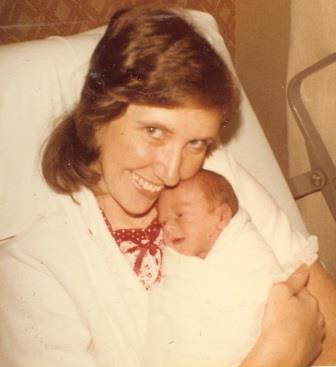
Wednesday, March 18
2:50 PM I decided to get up and grab some soup. Becky canned this years ago.
What happy memories of my bride working in the kitchen. Folks, this is completely homemade, from the broth to the ingredients. If this doesn't heal me, I don't know what will. While the soup is simmering I thought I'd update you on yesterday's chapel. David Platt made two essential points: (1) The local church is the sending agency for missions (see Acts 13); and (2) mission agencies need to be reformed, and they need to be reformed not from the top down but from the bottom up. I'd like to offer a few thoughts of my own based on what David said. Here goes:
1) Missions can no longer be defined as overseas service.
2) Our prayer as Christians should be the "thrusting out" command of our Lord when He said, "Beg [the verb is just that strong] the Lord of the Harvest to thrust forth workers into His harvest" (Matt. 9:37).
3) God has a magnificent new plan for reaching the lost, and it is called the native missionary movement. Actually, this is the ancient plan you'll find in the book of Acts, where local churches sent their best to share the Gospel with others.
4) Far from spelling the end of U.S. involvement in foreign missions, this plan enables us to use our resources most effectively. It is no longer a matter of us putting a large force into the field. It is no longer a matter of us hiring more professionals to do the job. We have been beguiled to think that missionaries are people who "go over there." We have failed to recognize that the professional foreign worker and the local cosmetologist are equally valuable and just as much needed as the other. I adamantly disagree with those who claim that the "missionary calling" is a higher calling than that, say, of a carpenter or a farmer. All careers are equally crucial in the advance of the kingdom. God's "missionary call" is made to each of us.
5) Sadly, this call has become a call to a location rather than to a lifelong vocation. In our minds, a missionary is someone who is doing mission work fulltime and is paid for that activity. The question each of us faces today is the question David posed in chapel yesterday: How may I best fit into God's purpose and bring together all that I have and all that I am in a vocation and a location that will most effectively promote the accomplishment of His purposes in the world?
6) This new revolution in missions I'm talking about requires a complete paradigm shift in our thinking. Do not look for a reason to outsource missions. Do not live selfishly and store up treasures on this earth that will be destroyed soon while billions are waiting to hear about Jesus. I believe that the fastest and most efficient way to reach our generation for Christ is to support the growing native missionary movement. As God's Spirit continues to move among us, I believe that literally hundreds of thousands of native evangelists will be sent forth from their local churches with the Gospel. One ministry with which I am acquainted currently supports more than 16,000 national evangelists. They are also training the believers in their congregations to be fulltime witnesses and are establishing sister congregations in their regions.
7) At the same time, each of us must seek the Lord's face as to where He will have us go to be a missionary. Usually it will be to our immediate neighbors and friends. Occasionally it might mean selflessly partnering with other local churches in North America or abroad. Certainly it will require mobilizing a host of committed national Christians in the heart of the 10/40 Window to reach the most unreached. In all cases, national evangelists must be supervised by local indigenous church elders under whom they work.
8) Currently I support evangelists in India who are taking the Gospel to unreached people groups. I've also had the great honor and privilege to come alongside the Peniel Gospel Team in Northeast India to help (along with many of you) the PGT build a school that will sustain their various ministries through tuition payments. This building will also be used to train hundreds of local evangelists who are ready to take the Gospel into neighboring Nepal and Bangladesh. I am grateful beyond words to see that the Lord is speaking to many of you about the need to be faithful to God's call on your life to share the Gospel with others and to use your affluence as Westerners to help your brothers and sisters in less fortunate places like Asia. Your financial investment will show in the result of lives changed and local, completely indigenous, churches established.
To wrap this up (I'm getting hungry!), Elton Trueblood once wrote in his famous book The Company of the Committed that the Gospel ministry is always a base and a field. The base is the local church to which the foot soldiers repair for new strength. The field is the entire world, and this is where all true Christians are to operate. We have made a good start when we learn to see our church buildings not as holy "sanctuaries" but as the headquarters from which the recruits are expected to go out. In this model of missions there is no cleric or layperson but all are engaged in accomplishing the task. This kind of involvement will take courage. Calvary-love is not sentimentality but the dreadful kind of love that sweats and weeps and sacrifices and perhaps even dies for the sake of the lost. But what greater Cause could we devote our lives to? The Scriptures remind us that we all are to become witnesses of Jesus' death and resurrection (Acts 1:8). This notion flies in the face of the myth of the professional missionary. It will take courage to break the mold. It will take boldness to call oneself a fulltime missionary. But as my favorite French theologian and philosopher Jacque Ellul once famously said, "Christians should be troublemakers, creators of uncertainty, agents of a dimension incompatible with society." After all, we follow Someone who was crucified for living a radically different life.
Hmm. I can't help but wonder if God will use our generation to reach the world with the Gospel after all.
Blessings!
Dave
11:36 AM I came home early today fighting a head cold and I'm determined to nip it in the bud through bed rest and vitamins, seeing that I have to lead a Ph.D. oral tomorrow. Prayers welcome! Later on I may post a few thoughts about yesterday's excellent chapel message by David Platt and the role the local church has to play in global evangelization. Plus, I'll have my iPad with me in bed and if I have strength I'll type up a few more thoughts about missions as they come to mind. But for now, let me leave you with a word of sympathy to the family of my former Talbot colleague Robert Saucy who passed away recently after suffering severe injuries in a car accident.
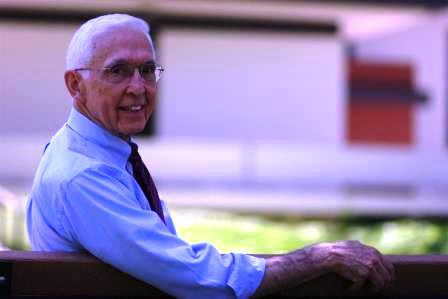
Bob was 84 years old and lived an exemplary Christian life. I loved him as a friend and as a fellow follower of Jesus. He will be sorely missed at Talbot and in the larger evangelical world.
Tuesday, March 17
8:22 AM Possibly the greatest guitar solo in rock and roll history:
8:08 AM Decker's Greek grammar has been awarded. The winner has been notified. I appreciated each of your emails. I'll have another contest soon.
Monday, March 16
11:44 PM Just wanted to say hello before going to bed tonight. I spent a few days in the Dallas area over the weekend, primarily to attend a conference sponsored by Brite Divinity School and featuring Adela Yarbro Collins of Yale. Her topic was the Gospel of Mark, which happens to be the current subject of investigation for my book on the kingdom. The lecture was less stimulating that I had expected. Perhaps my expectations were misplaced. I was hoping for a rigorous reassessment of the faith claims of the Gospel of Mark in a way that laypeople unfamiliar with New Testament scholarship could understand. To be sure, Collins touched on this subject tangentially, but the majority of her lecture repeated well-known assertions about Mark -- Mark is our earliest Gospel, the words "Son of God" (1:1) were added later, the last twelve verses of Mark are inauthentic, the Messianic Secret is the interpretive key to understanding this Gospel, etc. Given that the final verses of Mark have now been given a definitive defense I was surprised at how unpersuasive Collins was in trying to refute it. Moreover, I didn't find any of her objections to the historicity of Mark's account plausible. Jesus Christ is the most remarkable individual who ever lived. Nobody else can even remotely match His record in terms of literature, health, education, music, and so forth. Those of us who are not put off by the testimonies of the evangelists know that in Him we have found the way of salvation and true life. When there is reason to think that an evangelist has placed words in Jesus' mouth, it can be interesting to decide whether our suspicions are based on facts or suppositions. Readers of this blog will realize that I write from a less skeptical viewpoint than that. Indeed, the more difficult a saying of Jesus seems to be (e.g., the famous "I am" sayings of John), the more likely they are to be original in my view. I applaud much of Collins' exegesis of various passages in Mark that explain why Mark's Gospel reads like Mark's Gospel. But none of these conclusions satisfies the main question of interpretation, so her exegesis misses the mark. Most importantly, when she says "You can't point to anything in the Gospel of Mark and say, 'This is what Jesus said or did,'" her conclusion is, in my opinion, completely without merit. Given the fact that many New Testament scholars have affirmed the historical reliability of the eyewitness testimony of the evangelists, I feel justified in relying on the Gospel records as the most complete and authenticate records in all of human history. This means that the New Testament does indeed provide us with an answer to our most important question -- who is Jesus Christ? Ultimately, He is who He said He was -- the Son of God who takes away the sins of the world. It strikes me as more humble and more reasonable to assume that if the early church didn't see contradictions between the Gospels, we shouldn't either. Let me add that I do not for one minute suggest that the Gospels are above rigorous academic investigation. I realize that it is often asserted that the Gospels are unreliable. My point is that no arguments to date have, in my view, been cogent enough to make them stick. If this makes me an inerrantist, so be it. Former ICBI president (and fellow Basler) James Montgomery Boice once wrote:
Members of the Council believe that they are simply calling a mountain a mountain and think it is reasonable to expect that the ICBI will be a unifying force within evangelicalism, as it encourages Christian brothers and sisters to stand for the only objective basis of a sure foundation from God there is -- inerrancy.
Bless God for the light He has given us in the Scriptures for our journey through this dark world!
While I'm at the computer, let me add a brief word about my views on the professional pastorate, since I will also be dealing with this topic in my new book. It is not eldership but clericalism that is the danger. Obversely -- and this is of vital importance -- we can make anti-clericalism into an idol, a god at whose clay feet we worship with as much zeal and passion as those who bow the knee to the clerical system. (This anti-clerical attitude is apparent in several recent posts in various blogs.) I have no doubt that a stipendiary clergy pauperizes our people and places tradition above Scripture. But this is more than a question of who does what. If we are to maintain a voluntary system we must do so not only in obedience to the mind of Christ but also in obedience to the mind of the Spirit of Christ. I am well aware that a great many good and thoughtful professional pastors hold positions with which I disagree. I am also aware that for every local church that loses its professional pastor for reasons of the latter's conscience, a replacement will be found from within the ranks of those who feel themselves called to the professional ministry. I believe most professional pastors do what they believe is the correct course of action, and they do so conscientiously. Some of them (many of whom I know personally) are motivated by a belief that they can do more good by striving for reform from within their churches than by planting new churches. They plead for understanding and support from former paid pastors. Should they resign for reasons of conscience, they would do so only with the deepest regret, and future criticism they might make of the stipendiary clergy would be offered in a spirit of deepest empathy and the most cordial love. They know they are not better or wiser than those who continue in their paid pastorates. They pray and labor for a clergy that comprises every single follower of Jesus Christ, and they expect God to answer their prayers. They realize that the Great Commission will never be accomplished by trained and paid workers simply because we can never train and pay enough workers to get the job done. However, a danger exists that the appeal for voluntary leadership will lead to a new kind of Galatianism that claims the superiority of their "non-circumcised" status over against those who have submitted to the legalism of circumcision. Paul's response should put an end to pride on either side: "For in Christ Jesus neither circumcision nor uncircumcision amounts for anything, but only faith working in love" (Gal. 5:6). True faith is always a gracious faith; it works itself out by love for God and love to our brethren. It is not merely an intellectual faith, for "we all have knowledge; knowledge puffs up, but love builds up" (1 Cor. 8:1). It is a faith that is always expressed in kindness and affection and in a readiness to bear with the weaknesses of others. I censure myself as much as any other blogger out there when I say this: Love is utterly opposed to telling others in a condescending spirit what they "ought" to do, for truth is perfected only in love. So to my fellow reformers I say: Let others see our love and feel our heart of compassion even as they listen to our words of exhortation and correction. Let us not pride ourselves on having found the "only right way," for Christianity is much more than correct doctrine, even correct ecclesiology. The one essential of the Christian life is love, and one expression of Christian love is a tolerance of diversity -- a tolerance that does not spring from indifference but rather from an awareness that church practices are subordinate to what is essential.
To give you an example from my own congregation: When our elders decided to use a single loaf of bread during the observance of the Lord's Supper (in keeping with their interpretation of 1 Cor. 10:16-17), several members of our congregation expressed to them the uncomfortable feeling they had when touching a single loaf of bread with their fingers, and so alongside the one loaf was placed a platter on which had been laid bread that had been sliced into bite-sized pieces. I venture to insist that, far from being a compromise on the part of our elders, this was an exquisite demonstration of their love for the brethren. In other words, these leaders refused to turn forms into essentials. Whatever strengthens faith is valuable as a help but is worthless as a legalism. It is possible to support professional missionaries without becoming one yourself. (I do.) It is also possible to work with stipendiary pastors to propagate the truth that is revealed in Christ. (I do.) On the face of it, this would appear to be an act of compromise. But we must always separate our personal convictions from our willingness to cooperate with others in the cause of the Gospel. We who are non-professional missionaries must be careful not to judge professional missionaries any more than Paul condemned those who lived by the Gospel. Whether or not we are paid to be a missionary is a technicality. Spiritually, all obedient followers of Christ are missionaries to the non-Christian world. The same Spirit is given to all of us, and where the Spirit is, there is liberty of the most amazing kind (2 Cor. 3:17). If we focus too narrowly on matters of church organization, we face the very grave danger of missing the revelation of the Spirit as the Spirit who labors for the salvation of the world. Every form of Christian mission can and must be undertaken in, with, and by that one and the same Spirit, with each individual finding her or her own proper work under the one Spirit's guidance. So beware! The road back to Galatianism is all too easy to take.
Finally I'd like to ask for your prayers. You may know that I have been praying about writing a book describing my journey as Becky's widower. Why just last week I got yet another text saying to me, "You really ought to write a book for grieving widowers." Should I write this book? If so, what should I call it? How long should it be? Should it be advice-heavy, an autobiography, or a combination of both? Should it be the same or different from the many excellent books that are already on the market? I did a quick search of Amazon yesterday and it yielded several interesting titles:
-
A Grief Sanctified by J. I. Packer.
-
The Death of a Wife: Reflections of a Grieving Husband by Robert Vogt.
-
She's Gone, But Never Forgotten by Fred Thornton.
-
Dealing with Grief: Losing a Spouse by Patricia Challenor.
-
Healing a Spouse's Grieving Heart by Alan Wolfelt.
-
Grieving the Loss of Someone You Love by Raymond Mitsch.
-
How to Go On Living When Your Loved One Dies by Therese Rando.
-
On Grief and Grieving: Finding the Meaning of Grief Through the Five Stages of Loss.
-
Reflections of a Grieving Spouse by Norm Wright.
-
Confessions of a Grieving Christian by Zig Ziglar.
-
Lament for a Son by Nicholas Wolterstorff.
My constant prayer is, "Lord, is this a book you want me to write? If so, what should it look like?" At this stage, my mind keeps gravitating toward a book less like a study of grief and more like a journal (akin to Lewis's A Grief Observed). A working title (please help me to improve it!) is: Though I Walk Through the Valley: A Husband's Journey from Loss to Healing. Do me a favor and send me an email with your suggestions. As I put it all together, I'll need your help. Odd as it seems, I think I'm ready to write such a book even though its been only 14 months since Becky died. I even have a HUNCH as to how I might do this. So please help me process my thoughts so that I can get started.
Finally, as if you're not already tired out by reading these blatherings of mine, I leave you with a few pix of my weekend. Enjoy!
1) With mom and dad at Cheddars.
2) I spoke to this congregation in Garland on Friday night.
3) Pastor Bedilu is a good friend and a graduate of SEBTS (Ed.D.).
4) Ethiopians love to sing!
5) Adela Yarbro Collins during her lecture.
6) Then it was off to Southwestern Seminary in Fort Worth.
7) Archivist Jill was kind enough to show us the A. T. Robertson collection.
8) A letter penned by the man himself.
9) The library also had several historic pump organs on display. Thought Nate would like to see them since he loves to restore old reed organs.
10) Saturday night was Ethiopian food of course.
11) We tried a new restaurant and were well pleased with the migib.
12) Twice I treated mom to breakfast. I love pampering her!
13) This morning I also took her to get a manicure. I like the pink nails, don't you?
14) I hope yall remembered to celebrate Pi Day on Saturday (3.1415).
15) We sure did!
16) Snapped this pic while we were driving to mom and dad's church yesterday. I think "community" is the perfect translation for the Greek word ecclesia, don't you?
17) I can see why they call it the "Red" River.
18) At DFW I noticed this odd-looking sign out of the corner of my eye. "Pain"?
What in the world could that mean?
19) Then I got the bigger picture.
There's a lesson here about the importance of context, don't you think?!
Staying centered in the King (or at least trying to),
Dave
Thursday, March 12
8:04 AM A wise old preacher once said, "For everything there is a season, and a time for every matter under heaven" (Eccl. 3:1). Without doubt that includes a time for rest. Jesus once told His disciples, "Come away by yourselves to a lonely place and rest for a while" (Mark 6:31). Notice the "when" of His command – while "many were coming and going." When do we need to recharge our batteries the most? It is while we are surrounded by people in great physical and spiritual need. Vance Havner once told the story about two men who discovered their home towns were fairly close to each other. One of them said, "You know, I used to visit your town once a week when I drove a horse and buggy. It took me a while day to get there and back, but I enjoyed it. Now I can get there in half an hour by car, but I don't have the time." Are we using our time wisely? All of it? We all have exactly the same amount of time – 24 hours in every day. The important thing is how we use it. And we should consider leisure time as part of our stewardship responsibility before God.
Are we good stewards of our time when we spend night after night allowing a one-eyed god bathe our minds from 7:00 till 11:00? The Internet can become no less a subtle dictator, giving us so little of what is truly worthwhile and beneficial in return. If we sit at a desk all day it would be less than wise to do nothing more than sink into an armchair during our time off. "Rest" in that circumstance might mean a little physical activity. Nor is there anything wrong with enjoying a "day off" that includes a time for sensible change. For example, all around us in America are many famous places (and some not so famous) that help us step back and remember that history is "His story." To stand at the base of Mount Rushmore, or under the shadow of the "Clump of Trees" at Gettysburg, or at the spot in Texas where the defenders of the Alamo made their last stand, always fills me with a tingling knowledge that my own life is something more than a disconnected accident. I urge us to look on leisure as something the Lord God gives us to enrich our lives. Plan it sensibly – then enjoy it! By any reckoning, hyper-activity is pseudo-Christianity. That being so, our Lord's words to His disciples need to be heard loud and clear, and heeded here and now:
"Come away … and rest for a while."
Wednesday, March 11
8:30 PM This and that ...
1) Great dinner last last night with some missions-minded friends. In honor of my home state I ordered the Banzai Burger.
2) This morning we taped the promo for our forthcoming Greek grammar in Spanish. (Yes, I speak perfect Spanglish.)
3) A little fine tuning and we're good to go.
By the way, I put on my best Andrés Cantor voice.
Gooooooooooooal!
4) Guess who surprised me with donuts at my office today?
5) As always, we had an excellent student presentation in our LXX class today. But I must say that chapter 5 of Amos is very long.
6) Is my blogging this bad?
7) Columbia International University has some of the best chapel messages on the web. Here's one of them (and on a current topic to boot): Radical Islam.
8) I'm giving this fine book away. It's brand spankin' new too.
Just write and tell me why you want it. I'll announce the winner on Monday night, so you have a lot of time to think about it.
Tuesday, March 10
8:48 AM The very model of a biblical philologist.
8:24 AM My friend Don Stewart asks Did Jesus Write Anything? Good question! In one sense, of course, the question is utterly pretentious. We just as well might have asked, "Did Jesus use Twitter?" The question is an anachronism because it removes Jesus from His historical context. Writing a book is perhaps the ultimate act of hubris. By writing a book one must assume that she or he has something vitally important to say to others. (Both Don and I have written several books.) And the publisher, in making the author's words available to a broader audience, is complicit in this arrogant act. (Both Don and I have used a number of different publishers.)

The danger in publishing anything, of course, is that of supplanting Christ in the hearts and minds of our readers. This is always a very real possibility. I am far from being an authority on the life of Christ, yet I have written a book on His example. Two things moved me to write it. The first was the conviction that a restatement of the Christianity versus Christendom debate was overdue. The second was the fact that I had become aware of those sixteenth century disciples whose radical commitment to Jesus (even unto death) merit one's admiration and gratitude. I ventured to ask what I think are radical questions about Christian discipleship – questions that were raised with ruthless clarity 450 years ago by the Anabaptists. It seems to me a very unfortunate thing that their views have been swallowed up in traditional Christian thinking. You tend either to believe ill of them, or to believe good. One's judgment of the Anabaptists is settled too often by one's prior attitude toward them. I devote a chapter in my book to the Anabaptists because I believe their views ought to be familiar to any serious reader of Scripture. I hasten to say personally that I do not think that the Anabaptists were perfect. The one thing that is perfectly clear about Anabaptist theology is that it regarded discipleship as central rather than peripheral. It is, indeed, a catastrophic correction of what for centuries had been passed off for genuine Christianity. Without doubt the Anabaptist message of scandalous obedience deserves a re-hearing today.
So, did Jesus write a book? Concludes Don Stewart:
As to whether He wrote anything ... [all] that we can know for certain is that Jesus could have written letters or books if He so wished. Why He did not leave anything for us in writing, whether it be a systematic arrangement of His teachings or His inner thoughts, we simply do not know.
Would Jesus have written a book called The Jesus Paradigm? The answer, of course, is no. Jesus has already written the book on the subject – all 27 of them in fact. And He assigned the authorship to men such as James and John and Peter and Paul. That should not surprise us. At the incarnation Christ emptied Himself, not of His Godhead, but of any desire to focus attention on Himself at the expense of others (see Phil. 2:5-11). In thus making Himself "of no reputation," He lays bare the Jesus paradigm as no earthly author ever could.
Monday, March 9
6:36 PM Just back from Roanoke. While there I decided to check out the transportation museum. A huge treat if you love trains as much as I do. The HO model railroad layout is something else. Can't wait to take all the grandkids here (though not all at once).
9:18 AM Off to meet with the "tax man."
9:02 AM My colleague Alvin Reid has written an excellent piece called Remembering the Jesus Movement. For many of you, this period of American church history occurred long before you were even born. Alvin was there, a part of it all. So was I.
I can remember my Jesus Freak days in Hawaii. Despite all of our eccentricities, I loved the fact that we were always talking about Jesus. First came Christ – not an institution. Then came one another – in Christ. Then came the world – for whom Christ died. These three commitments were not the result of seminary training. No, we were a bunch of establishment misfits. But the lordship of Christ was taken with total seriousness. We read verses like Col. 1:18 and were blown away – Jesus Christ at the center, in front, at the top, and beneath everything. Away with ecclesiastical traditions! Out with Madison Avenue approaches to church leadership! We scoffed at pastors who thought of themselves as modern-day Luthers or Calvins, blindly following some silly new book on leadership that 5 years later would be discarded. (I told you we were eccentric.) I'm not saying that we were always right. We weren't. Our theology was muddled in many areas. But we loved Jesus. We sought to serve and obey and enjoy the One who alone was worthy of our focus and worship and attention and obedience. Our church life revolved around Him – not a pastor or a pulpit or a program or a personality. We surfed. We laughed. We shared Christ. We sat around and sang silly Jesus songs. Man, them was some good days.

There's this great quote in Alvin's essay:
The Jesus Movement presented a unique, youth-driven awakening. This reality affected it negatively in that it tended to be driven by emotion and was at times superficial. But I lay some of the blame for that at the foot of churches. If God moved in a younger generation today He might in fact start outside the church with youth who have not been inoculated with a cultural Christianity short on sacrifice and long on comfort. He may use vehicles like film and Youtube to spread the movement. How would the church handle that?
Friends, making Jesus number 1 is what it's all about. Isn't it about time we got back to the Bible's way of moving people toward Christ rather than ourselves? A great place to start might be ridding ourselves of our anthropocentricity. It can happen. It is happening. Beware the new Jesus Freaks!
Sunday, March 8
7:44 PM If you ever find yourself a transplant in the South, you had better learn some of the most common Southernisms. This heah list just caint be beat. One of my favorites?
Et.
v. past tense. The past tense of eat, also found in other English dialects, such as Received Pronunciation, as in: "How many dem poke sawssigiz is you et, Caeser Earl?" "Et two, Brutus Bob. Dass awl."
7:32 PM Seems like everybody was horseback riding today, including my daughter Kim, who sent along this picture taken atop her walking horse.

It's often been said that there's nothing better for the inside of a man than the outside of a horse. The horse remains my favorite creature, even though I don't ride any more. To all of you riders out there: Be safe, and jump a big log for me.
2:02 PM Just received these pix from brother Mammen Joseph and the Peniel Gospel Team in Northeast India:
Sweetastik! In the early days of the Wesleyan Revival, John Wesley wrote:
Many now happily experienced that Christian fellowship which they had not so much as an idea before. They began to "bear one another's burdens," and naturally to "care for each other." As they had daily a more intimate acquaintance with, so they had a more endeared affection for, each other.
This April we are sending a team to India to minister among these people and to be present at the dedication of the new school building in Bagdogra, concerning which Mammen writes:
The construction is now in its full swing. We have also started the landscaping work of building and we hope to complete the building construction work by the end of this month. We have so far received a very good response for the school and there are admissions that we have confirmed in this last week.
Will you join me in praising and thanking God for this miracle provision from His hand? There is no teaching in the New Testament more practical than that about missions. But the majority of the world has yet to be reached. As these pictures show, the most effective evangelism is done face to face by native missionaries in the villages and cities where the people live. May God's Spirit continue to move His people in North America to become involved personally in the great work He is doing in places like India.
9:04 AM Writing to his wife Mary from his barracks in Texas, Robert E. Lee once described a newlywed army wife as follows:
It is a beautiful thing to see the young so hopeful. It is sad to think how soon the clouds of disappointment darken the prospect of life's horizon.
I miss her every moment, this Becky to whom I was once so blissfully wed.
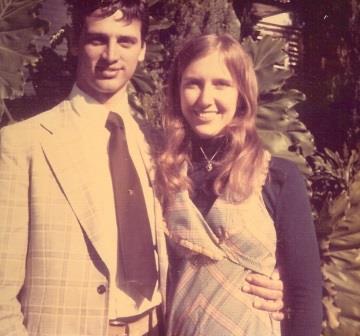
As it was originally designed, marriage was to be the closest possible bond between two human beings. A bereaved spouse is like a man with one leg, or a person who has suddenly lost his eyesight. In this way, marriage bears an uncanny correspondence with the pain one must suffer when one becomes a Christian. Before we can trust Christ, we must be broken upon the rocks of life, must come to the end of ourselves, must have a felt need for redemption and restoration. Perhaps it is little wonder that people often come to the Savior only after experiencing a "severe mercy" in their lives. When everything is going well in our lives, we can sidestep the real issues of sin and salvation. But let difficulty enter, and all that changes. We become vulnerable.
Marriage affords us a small glimpse of what it means to be vulnerable. If it brings us great joy and pleasure (and it does), it also exposes the deepest darkness of our hearts. In short, marriage is like a cross. It is a dying to self. This is true whether your marriage is a present or a past reality. The loss of a spouse simply means that more dying will have to occur. I mourn Becky because she is gone. But I mourned with her even while she was still alive. As times goes on and the newlyweds learn to adapt and adjust to each other, kisses are inevitably matched with tears. Yet amidst all of the difficulties of marriage, we can still strive for unconditional love.
Is this the love you are offering today to your spouse? For sadly, marriages can grow stale and mundane. "It is sad to think how soon the clouds of disappointment darken the prospect of life's horizon." Yes, bright days are followed by cloudy ones. Yet even in the darkness there is hope. Perhaps it is only by mourning the loss of intimacy that we can regain it.
Saturday, March 7
9:30 PM Great dinner at the Queen of Sheba tonight with one of my daughters. Here's the queen herself, Friesh.
Check it out when you're in Chapel Hill.
9:28 AM I read through Ephesians, Philippians, and Colossians in Greek yesterday. Today it's the so-called Pastoral Epistles. I say "so-called" because neither Timothy nor Titus were pastors of the churches they were sent to by Paul. Still ....
It’s not hard to find books or articles that refer to Timothy as “the pastor” of the church in Ephesus. And since all would agree that Paul instructed him to exercise leadership of the elders of the Ephesian church, wouldn’t that make him a kind of senior pastor? We need to look more closely at the ministry roles of these two men.
To get this "closer look," click here. It will be well worth your time.
9:05 AM If you're gonna preach a sermon, you might as well make it interesting. And no one could grab his audience's attention quite like Fred Craddock, who passed away on March 6. Here's proof:
Some say he reinvented the homiletical wheel, that he turned sermons on their head by reflecting on life and then concluding with a "gotcha" moment. To be honest, I prefer that to a running exegesis that I could get in one fourth the time by reading it in a commentary. Thankfully, it's rarely a matter of an either/or. Among conservative evangelicals, Kent Hughes is perhaps best known for his knack for the appropriate story while combining it with solid text-based exposition. Ditto for the great and good Warren Wiersbe. (I highly recommend their commentary series.) I am not an outstanding public speaker, but I rarely "preach a sermon" without telling at least one story, often a humorous one. No matter what your approach to preaching is, I hope we can all agree that a message must not only be faithful to the biblical text. It should also be simple and down-to-earth. Truth without emotion is dead.
Friday, March 6
9:16 PM Couldn't resist it. Just had a fabulous meal at Mexico Viejo and now I'm about to settle down with a good book. The day was so gorgeous it hurt. Finally -- no snow on the ground!
P.S. Regarding the La Guardia airliner evacuation (and the complaints of people taking their bags with them during the evacuation), I note that, according to the NTSB, emergency aircraft evacuations happen once every 11 days in the U.S. This raises the obvious question: If we can have preflight safety instructions, why can't the briefing be repeated just before landing, with emphasis on emergency egress and why it is important to leave large bags on board? Statistically, you are more likely to be involved in a crash during landing than at any other point in the flight.
But my book awaits me ....
12:10 PM In light of Bibi's speech before Congress, I can't help but reflect on where things stand in the U.S. today. My words are especially directed toward any Twenty- and Thirty-Somethings who might be reading my blog. My parents' generation has been called "The Greatest Generation" because they fought the Nazis and mobilized for the Cold War. What we forget is the fiscal burden they placed on their posterity, producing an American political system that seems utterly incapable of tackling any big multigenerational problems, including our national debt or even something as basic as national security. America has entered an irreversible downward spiral. We had better understand this new era we're entering. The American spirit -- "We are entitled to whatever we want" -- demands growth and consumption. We want the appetizers, the entrees, and the desserts, all at once, and we are eager to ask government to provide it for us. Today each follower of Jesus stands at the crossroads on the question of personal priorities. Will we surrender to the spirit of this age, or will we resist and join the downward movement of Jesus, making a conscious choice to deny the normal comforts and conveniences of life for the sake of others? We rightly honor those who die in military service, we celebrate the accomplishments of our nation's athletes, we honor fire fighters who perish in public service, but the minute a Christian young person refuses to accept the American Dream and voluntarily takes on an assignment that involves suffering we spend hours trying to talk him or her out of "going overboard." I am not saying that every Christian must become a professional missionary. But I am saying that if you are really sincere about following Christ, you will not be at peace with yourself until the whole world knows of Him, and you will be intentional about using whatever He has given you -- your time, your energy, your wealth, your vocation, your vacations even -- to serve the expansion of His kingdom.
"What good is knowledge unapplied?" asked one of my elders recently. What good is an education unless we place it at the feet of King Jesus? Students, my parents' generation, and my own as well, have failed you because we have catered to the rotten spot in the soul of our nation. We have taught you to expect instant gratification, that the "good life" is the only life there is, that extravagance and waste are the normal patterns of our human existence, that security and liberty are our natural "rights." We have clenched our fists at our "enemies"-- not all of us, but many of us -- and have refused to receive the nail prints of the cross, unwilling to make even small sacrifices to reach the millions of lost souls in our world. How different this is from the self-sacrifice of our spiritual forefathers in the book of Acts. Something is desperately wrong, and it is up to your generation to turn it around. The only way Christ will be incarnated to a lost world is through you. As the Father sent Him, so He is sending you so that others can taste and feel and see His presence.
If you are willing to make this commitment, I have a book for you. It is free for the asking. Just send me an email with your snail mail address and I will see that you receive a copy of Will You Join the Cause of Global Missions?
God bless you all.
Dave
10:42 AM The current U.S. radar:
If you're stranded in an airport, I do hope you can get home today. The weather sure is cooperating!
10:16 AM OK, folks. I need your advice. I need to buy a new coffee machine. No, I'm not a connoisseur of coffee, but a good cup of coffee is important to me in the morning. Last weekend the guest house where I was saying had the Cuisinart Coffeemaker and boy did it make a smoooooth cup of coffee.

I suppose it might have had something to do with its charcoal water filter. So unless you can come up with a better idea, I'm ordering one this evening.
So ... yeah or nay?
10:05 AM Wright's obituary of Cranfield contains this statement:
Cranfield was known in Durham as a patient and thorough, if not exactly scintillating, lecturer. His deep concern to probe to the very heart of the text, and his careful attention to all relevant details, tried the patience of those less studious, and perhaps less saintly, than himself. But there was never any doubt that one was in the presence of a man who cared equally deeply about the actual content and personal meaning of the text and about the importance of exact, clear-thinking scholarship upon it. These are the qualities that shine out of his published work.
A fine tribute indeed.
Thursday, March 5
7:36 PM The American Civil War is a heartbreaking, glorious, sad, and heroic tale. It will never bore you, that's for sure. Here's Longstreet's Assault (Pickett's Charge) at Gettysburg last August. To my right is my faculty colleague Ken Coley (aka George Pickett). We're about to cross the Emmitsburg Road.
The Lutheran Theological Seminary at Gettysburg. Its cupola witnessed plenty of action on the first day of battle.
Here Rob Gibson of Gettysburg displays his photographic genius. It's like you're watching Matthew Brady at work.
Someone has put it this way (source):
We of CVBT don’t wish to preserve the ground of a Civil War battlefield in order to glorify war or to enable reenactors to “play soldier and have a high old time.” Rather, we do so in order to commemorate this most important and defining event in the history of our country, to preserve the memory and meaning of what took place on that ground, and to remember and honor the men in both blue and gray who fought and fell there, to ponder what they did and why they did it. There are lessons to be learned by having such special ground to walk upon.
I couldn't agree more.
6:48 PM Looking forward to receiving and reviewing this new book.
5:55 PM I like the upbeat nature of this great song by Orleans. I loved it when Becky and I were together and I still love it today. "Even though we grow old, we grow new." Amen! Guys, play it to your spouse tonight and tell her "You're Still the One!"
5:18 PPM In between working on my taxes (again!) and washing clothes I mosied over to First Things and happened upon an excellent symposium called Theology As Knowledge. Intriguing title! In fact, during my visit to South Carolina the question about the proper role of academia in Christianity came up more than once. I agree with Stanley Hauerwas. In the symposium he was quite insistent that theologians must practice their craft "as if it mattered."
We must bring to an end the disciplinary divisions that invite theologians to say, "I cannot comment on St. Paul's understanding of the gospel because scripture is not my field."
Took the words right out of my mouth.
I have long complained about what I call the "atomization" and "fragmentization" of our discipline as biblical scholars. "I wrote my dissertation on Paul. How do you expect me to comment on John's Gospel?" we ask in disbelief. Years ago, Mark Noll of Notre Dame (and a fellow evangelical) wrote a book (Between Faith and Criticism) that I think all budding biblical scholars should read, because in it he does what no one else I have read has ever done. Noll uses the terms "critical scholar" and "anti-critical critical scholar" to describe the two different ways of approaching the role of faith versus reason. You see, at the time I was coming off of three years in my doctoral program in Basel and asking myself the question, "To what purpose shall I use my education?" Since then I've been around the block a few times. For me, the question has never been, "Is the Christian faith reasonable?" Of course it is. Christianity could only be declared irrational if there were proofs to support that conclusion. But thinking people have thronged to Jesus by the millions throughout the ages. Christianity is not only a reasonable worldview, it couples faith with philosophy in such a way that ennobles both disciplines. Which is why I could never be a fundamentalist on the one hand or a liberal on the other. The question for me is not one of faith or reason. It is rather a question of a faithless reason versus a reasonable faith. (I am not quoting him, but I believe Noll wrote something to that effect in his book.) There is no point in pretending that we so-called scholars can go our merry ways doing our academic "thing" and not consider the implications our worldview has for the Gospel. I believe Noll was trying to coax his readers into a mindset that allowed for really good scholarship but never at the expense of living out the truth of the Gospel. Orthodoxy and orthopraxy, in other words, are two sides of the same drachma. Both "Credo ut intelligam" and "Intelligo ut credam" are true. They warn us of the fallacy of adhering strictly to a magisterium on the one hand even as they warn us against the lure of rationalism on the other. For me, thinking and living have become a total vocation. I am not saying that there is no place for "research scholars" or that the academy is bankrupt per se. The apostle Paul exemplified the balance needed. Like Saul of Tarsus (who gave up his intellectual arrogance but not his intellectual prowess), you might say I'm a recovering New Testament scholar. My message is now simply, "God so loved the world that He gave His only Son." And all this without sacrificing my intellect.
I am grateful for scholars like Mark Noll who aren't afraid to tell it like it is. Believing in miracles and making faith reasonable will never be found to be in contradiction though perhaps they will always coexist in a certain tension. But that tension is healthy. When I "preach revivals" (as I just did in South Carolina) I want my messages to be rooted and grounded in the text of Scripture as far as that is humanly possible. But I also want my words to move and bestir to action. Christianity is not afraid of a muscular push toward orthodoxy. Nor is it concerned only with ideas. I don't mean to suggest that one will ever achieve a perfect balance between faith and reason. I know I haven't. But I see the advantages of being an anti-critical scholar over against one who simply espouses the party line (of whatever party happens to be in power at the time). Basel, in fact, has always been famous as a place of refuge for free thinkers (Erasmus and Calvin are two examples that immediately come to mind). That said, theology textbooks will not make the world a better place. Monasteries and nunneries may perhaps have their proper place, but a lost and dying world will never be reached by retreating into our cloistered ivory towers (or into our homesteads in rural Virginia).
"Theology As Knowledge" was an enjoyable and thoroughly enlightening read. Intellectual curiosity might send you there, but evangelical fervor won't let you stop there.
8:02 AM Getting caught up with emails. Still over 100 to go. Thanks for your patience.
7:42 AM Last night I began reading a fascinating book by Jonathan Horn. It's got an interesting thesis: Just as George Washington was the man who refused to become king, so his heir Robert E. Lee refused to become head of Lincoln's army, an army whose goal was to preserve the union that Washington had worked so hard to establish.
Thus Lee surrendered the commission in the army he had served for more than three decades. Lee's own father, Light Horse Harry Lee, had served as one of George Washington's most trusted cavalrymen during the Revolution, and two Lees had signed the Declaration of Independence. It was Lee's father who had said of Washington, "first in war, first in peace, first in the hearts of his countrymen." Washington himself had said of the nation, "Thus you will give immortality to that union, which was the constant object of my terrestrial labours; thus you will preserve [it] undisturbed to the latest posterity...." But Lee took a different decision. He turned his back on the Union and cast his fortune with the Rebellion.
Horn convincingly argues that Lee might have been the second coming of Washington -- a Washington Redivivus -- had he chosen differently. How different Arlington House would look today if Lee had followed his own belief against secession; if he had cast his lot with the Union instead of his state; if he had aligned his fortune with the North rather than the South. But Lee stood on one bank of the Potomac, Washington on the other. And the currents of that river drove the nation apart even as it drove it back to the Constitution and cleared the way for a prairie lawyer to rid the nation of slavery.
This is a really good book, not least because it reminds us that we all face decisions in life that end up determining our future course in ways we never thought imaginable. My decision to leave the shores of Kailua and study at Biola ... my decision to marry a southern belle from Texas ... my decision to pursue an European doctorate ... our decision to move to the East Coast ... and more decisions are yet to come I'm sure. Yet the principle is always the same: You go with your heart; you do what in your heart of hearts you know is the right thing for you to do. It is perhaps in this sense that the great apostle Paul came to a point in his life where he no longer attached merit and significance to all of his earthly and human attainments and privileges (Phil. 3). He shows, from his own personal and painful experience, that what he had considered gain turned out to be loss. His argument is simple: "If there must be boasting, let it be in the Lord alone." All of his separate "gains" had become one gigantic "loss." His assets had been transformed into liabilities, the plusses had become a zero. Of course, there is nothing wrong with accomplishments or privileges or attainments or prestigious degrees or wealth. But when these things -- and they are all merely things -- begin to be viewed as things important in and of themselves, when they begin to be viewed not as undeserved blessings but as prideful accomplishments, when they begin to be viewed as a basis for entry into heaven (or into the academic guild), they become their opposites. All such blessings soon become disadvantages, liabilities, stumbling blocks of enormous magnitude because they deprive us of the greatest treasure, which is Christ Himself. Like the bright and morning star, our radiance is intended to fade into nothingness in the light of the Rising Son. Once we consider our blessings to be merits, the time has come to discard them all as worthless -- less then worthless -- abominable trash. Cell phones are absolutely necessary. But their use while driving is often disastrous, and the result is a serious accident. We can say the same thing about the over-adulation of sports, wealth, physical beauty, and a hundred other things. Paul aimed at gaining Christ and serving Him in lowly obedience and love. Just as he no longer considered Christ according to the flesh, so he wanted no one to consider him according to his earthy attainments and accomplishments, though indeed there were many. Paul sought only to promote the glory of God by every means at his disposal, and then he enjoined us to become "imitators of me, and watch closely those who are walking according to the example we have set you." Once such example comes to mind immediately. I've quoted him often in these pages, but the words of Malcolm Muggeridge were never more needed than today when pastors and church leaders gladly elevate themselves with titles and platforms:
I may, I suppose, regard myself, or pass for being, as a relatively successful man. People occasionally stare at me in the streets–that’s fame. I can fairly easily earn enough to qualify for admission to the higher slopes of the Internal Revenue–that’s success. Furnished with money and a little fame even the elderly, if they care to, may partake of trendy diversions– that’s pleasure. It might happen once in a while that something I said or wrote was sufficiently heeded for me to persuade myself that it represented a serious impact on our time–that’s fulfillment. Yet I say to you — and I beg you to believe me–multiply these tiny triumphs by a million, add them all together, and they are nothing–less than nothing, a positive impediment–measured against one draught of that living water Christ offers to the spiritually thirsty, irrespective of who or what they are.
What men prize so highly is not so highly prized after all by our Savior. The apostle Paul and others after him have considered such prizes to be nothing but horse manure, unspeakable filth. The fatal flaw with education is that it leaves a large place for human pride. I want to be known as a simple student of Scripture. Nothing more, nothing less. If that means I am a pietist, I gladly wear the label.
Wednesday, March 4
6:15 PM My trip to Charleston turned out to be a delightful 5 days. It was clearly ordained by Him. He had arranged all of my meetings and had opened every door. All praise to Him. I had wonderful fellowship with several of my former students and made many new friends as well as (I hope) a number of supporters to the Cause of causes. As I drove from place to place I kept the radio off and just enjoyed the great natural beauty of South Carolina's Low Country. I also spent time listening to His voice and allowing Him to deal with me on a number of issues that impact the future of my work and my walk with Him. As I spoke to students and congregations I felt a bit like a broken record, and sometimes I wondered why people even listened to me. To some, I'm sure I sounded like a fundamentalist wacko or a hopeless eccentric as I kept giving believers reasons why all of us should become fulltime missionaries and why the people in Asia (in particular) will remain lost until native missionaries go to them. The souls of millions are at stake, so I make no apology for not focusing in my talks on the latest debates in biblical studies or rehashing truths that people have heard a bazillion times. I do have several regrets. I wish I had brought and distributed more copies of Will You Join the Cause of Global Missions? than I had. I wish I had called all the deacons together at the end of our final revival service meeting to pray publicly for and with their new pastor. I wish I had been less fearful about insisting that local churches recover the genuine message of the Gospel of Jesus -- the message that genuine born-again conversion always leads to sending soldiers into battle with spiritual weapons and a proper understanding of the enemy's tactics. Lord willing, I'll take this message to Dallas next weekend and to Memphis next month. "Evangelical Christianity," said A. W. Tozer just before his death, "is now tragically below the New Testament spiritual standard." I'm afraid he's right. If we are not willing to plead to God in prayer for a revolution in global missions -- and let us start in our personal lives, homes, and families -- we will lose this generation to Satan. India alone has 500,000 unevangelized villages. The laborers are ready. Are we willing to support them? What intrigues me is the way the native missionary movement is growing without our Western input. For the sake of Christ, let each believer in North America reconsider the missionary polices and practices that have guided Western evangelicalism for decades. Roland Allen put it this way in his classic book The Spontaneous Expansion of the Church: " ... no sound missionary policy can be based upon multiplication of missionaries and mission stations" (p. 19). Ever since Becky and I became involved personally in supporting native missionaries our whole perspective on missions really changed. Our burden for the lost greatly increased, and we grew more eternally minded. Now I am hungry to carry on the work the Lord has called me to do in Becky's absence. "Lord, use me! What more can I do for you?" May that be the blessed goal of each and every one of us this year.
Dozens of people made my trip the success it was and I want to thank them all: Corey and Autumn Leggett of Mount Tabor Baptist Church in Bowman, as well as all of their Sunday School class leaders who arranged nightly meals; Dean Michael Bryant and Professors Peter Link and Ross Parker of the Christian Studies Division at Charleston Southern University; and Charles McCallum, Discipleship Pastor at Old Fort Baptist Church in Summerville. All of these men took classes with me at one time or another, and each seemed to have survived the experience. I'd also like to thank the Delk family of Bowman, SC, who made available to me their beautiful guest house during my entire visit.
I feel like it's time to kick back and relax, but I have a sneaking suspicion that the Holy Spirit's not going to let me off the hook just yet. Part of the sin of pride is a real but subtle tendency to get involved in causes that don't really matter in the light of eternity. I'll always have new dragons to slay (and so will you), but let's keep them in their proper perspective. Let's be about building Godworld and let's do it in ways that the superabundance we enjoy here in America is not squandered here but invested in our main work of reconciling men and women to God and redeeming their soils from hell. Amen?
A few pix:
1) Here's a shout out to Kidist from Ethiopia, who works at RDU. Hope you enjoy Becky's book!
2) My guest house in Bowman.
3) Mount Tabor Baptist Church.
4) Corey, Autumn, and their beautiful children.
5) Charleston Southern University. What a gorgeous campus.
6) I had the privilege of speaking in Peter Link's beginning Hebrew class.
7) Ditto for Michael Bryant's Christian Ministries class.
8) The Christian Studies building.
9) I did some writing here.
10) Time for sight-seeing? Always.
11) The weather could not have been better for picture taking.
12) The sign says "Privy c. 1791."
13) Flora and fauna.
14) More theological education.
15) Charles McCallum and his sweet family.
16) My view as we left Charleston this morning to fly to Charlotte.
